

The generation game




The generation game



At only 1,595mm width and 3,595mm length the Picanto is a very popular choice for those in retirement villages or small units. It’s compact design means it fits in the cosiest of garages and on narrow roads.
Although small on the outside the Picanto’s interior is a masterpiece of minimalism with plenty of space for four adults.
A lively 1.25L petrol engine coupled to a smooth 4-speed automatic transmission delivers 62 kW of feisty performance and very economical drive that will take you a long way between fills. The Picanto meets or exceeds every existing emission standards.
Not only the perfect city companion, hit the open road and discover that size is no barrier to performance.

Although the Picanto is small in size it is BIG on safety. Equipped with a comprehensive range of safety and driver assistance technologies.
Rear parking sensors and a rearview camera guide you easily into the tightest parking spaces while electronic stability control, autonomous emergency braking and six airbags protect you and your passengers.






03 544 4390
jennian.co.nz
Step Out is our annual month-long festival of active events that takes place throughout October across Nelson and the Tasman District. These activities are put together by groups, clubs and individuals all over the region and promote an active lifestyle and healthy wellbeing.
There is a diverse range of events based on fitness level, location and duration –so something for everyone!
Step Out encourages our community to stay active and provides an opportunity to connect with others and the environment.

As part of promoting positive ageing, we host regular networking and information sessions for older people called Positive Ageing Forums. The meetings are open for agencies and individuals and cover various topics such as wellbeing, housing, digital literacy and others.
Richmond Meetings
• Tuesday 3 September, Constance Barnicoat Room, Richmond Library.
• Tuesday 5 November, Tasman District Council Chambers, Richmond.
Meetings start at 1.00 pm
Motueka Meetings
• Tuesday 17 September
• Tuesday 19 November
Meetings start at 11.00 am and will be held at the Over Fifties Social Hub on Pah Street.
More information can be found at tasman.govt.nz/positive-ageing-forum.
Among the list of 19 events confirmed so far are:
• Family Fun at Snowden’s Bush –Brightwater, Friday 4 October, 2.00 pm
• Welcoming Godwits – Motueka Sandspit, Saturday 5 October, 9.30 am
• Tasman Bay Beach Clean-Up –L.E.H. Baigent Memorial Reserve, Kina, Sunday 13 October, 9.00 am
• Searching for South Island Kōkako –Collingwood, Sunday 20 October, 10.00 am
• Disk Ball Open Day – Redstone Golf Park, Wakefield, Sunday 20 October, 2.00 pm
More information and updates can be found at www.facebook.com/StepOutNelsonTasman.
Motueka Pottery Exhibition
1 September – 13 October, Motueka Museum. The 1970s was a boom time for pottery in Nelson Tasman. It’s said there were more potters per capita than anywhere else in the country. Come along and check out the Motueka Museum’s latest exhibition: Looking Back: 50 Years of the Motueka Pottery Workshop and Collected Ceramics from the Museum Collection.
Wellby Talking Cafés
• Tuesday 10 September, 10.00 am – 11.30 am, Tapawera Community Centre.
• Tuesday 10 September, 1.30 pm – 3.00 pm, Richmond Library.
• Wednesday 18 September, 10.00 am – 11.30 am, Motueka Library. Come along for a relaxed cuppa to start your journey connecting with others who enjoy the same things. You can pop in for a quick chat or stay for a longer conversation with friendly people.
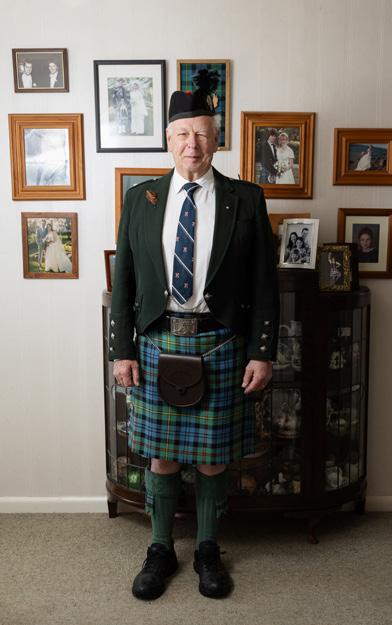
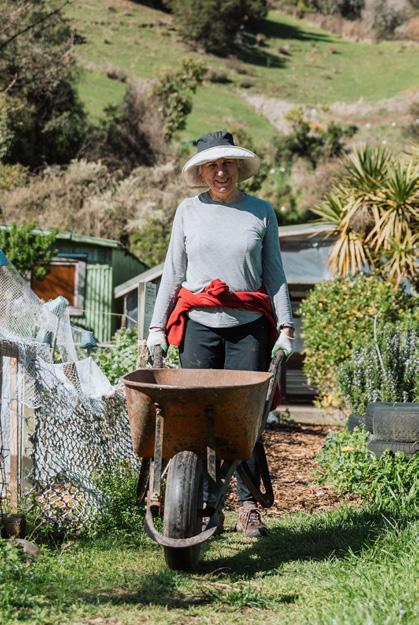
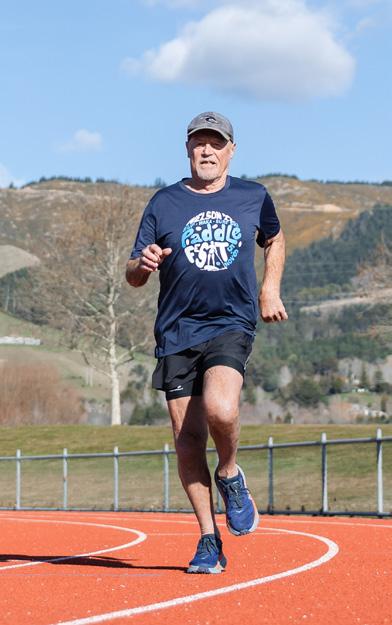
9 Money for jam Kirkpatrick’s Jam Factory: Nelson’s leading 19th-century Australasian brand.
11 Giving it a go Empowered by pole.
13 Passionate People Piper preserves Scottish traditions in Nelson.
15 - 17 The generation game Grandparents actively involved in raising their grandchildren.
18 - 21 Supportive circles spark literacy success
A look at writing groups in the region.
37 Busting fitness myths What you need to know for a healthier you.
Grab your copy: Nelson City Council, Elma Turner Library, Stoke Library, Greenmeadows Centre, Tasman District Council, Richmond Library, Alioke Eatery, Motueka Guardian office, Motueka Library, Rabbit Island Coffee Co, retirement homes, waiting rooms, cafés and various other locations.


the cover
In your garden with Philippa Foes Lamb.
Page 42
BREATHE IN WHAT’S NEXT
Have a no cost no obligation property appraisal before 20 September 2024 and go in the draw to win a luxury escape to beautiful Tahiti.*

NZSOTHEBYSREALTY.COM/ESCAPEINLUXURY
TEL 03 539 0216 | 1/295 TRAFALGAR STREET, NELSON
* Terms and conditions apply. View at nzsothebysrealty.com/escapeinluxury
Each Office is Independently Owned and Operated. Xenon Real Estate Limited (licensed under the REAA 2008) MREINZ.

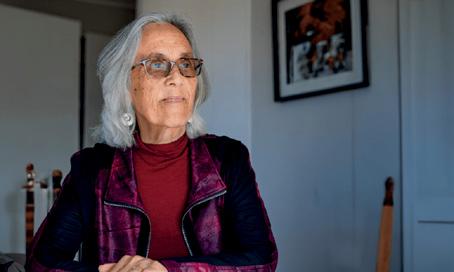
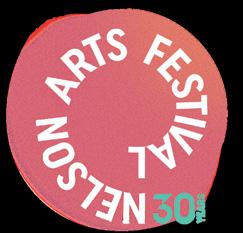

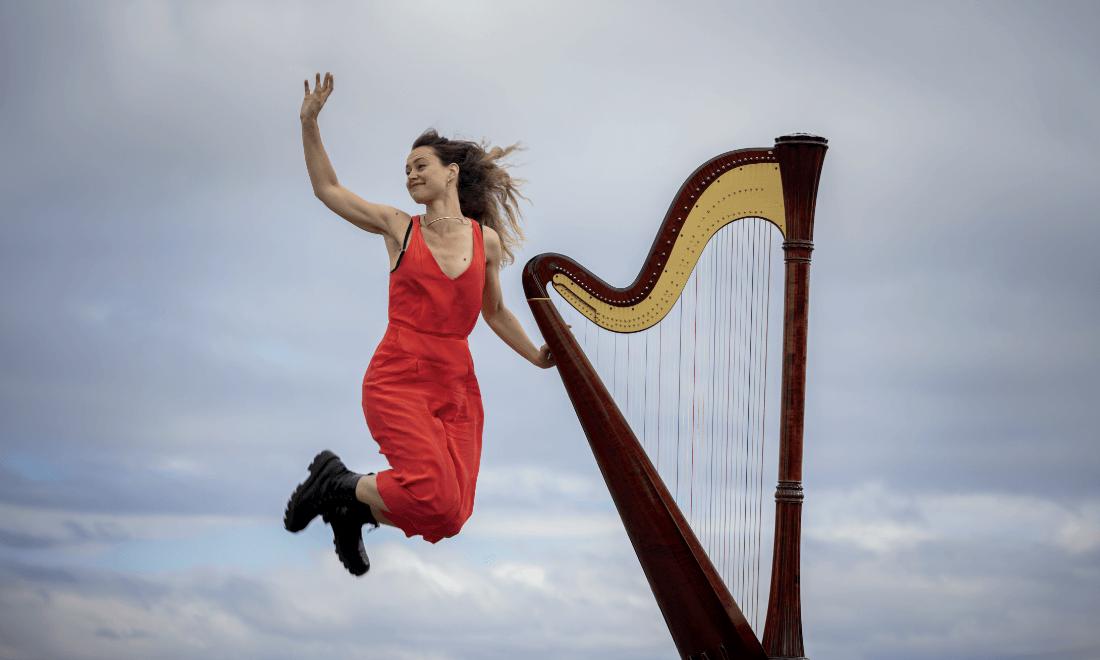


EDITOR
Karen Scott
bestlife@topsouthmedia.co.nz
CONTRIBUTORS
Alistair Hughes, Adrienne Matthews, Amy Russ, Patricia Pataki, Justin Eade, Philippa Foes-Lamb, Tessa Claus, Stella Chrysotomou, Judene Edgar, Heather Thomas, Marrit Walstra, Brianna Wehner
ADVERTISING
Christine Hatton
christine@topsouthmedia.co.nz
Ph 03 548 5900
DESIGN
Patrick Connor & Toni Woolf
TASMAN

PUBLISHER:
Top South Media 563 Main Rd, Stoke, topsouthmedia.co.nz
issuu.com/nelsonweekly
Something you read in Best Life got you thinking? We'd love to hear your feedback, opinions and thoughts. You can email us at bestlife@topsouthmedia.co.nz
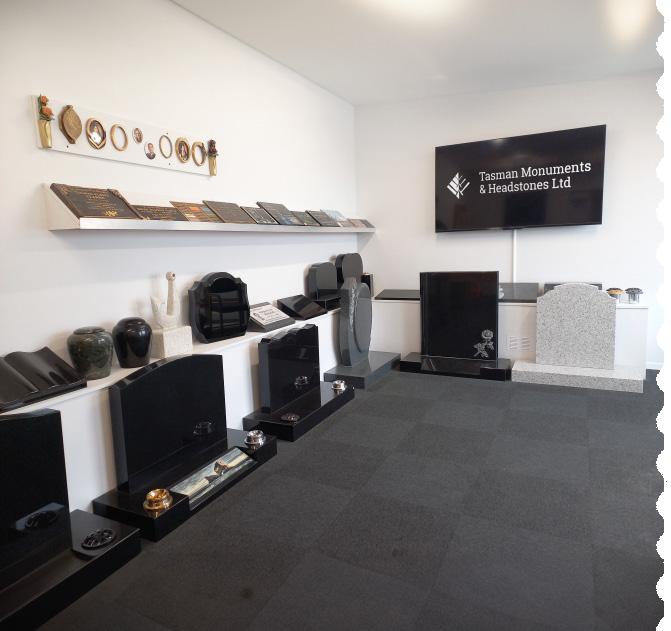
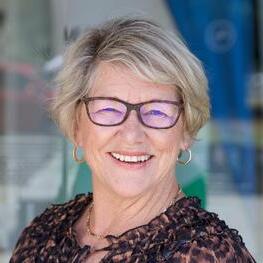
While out walking the other day, I saw a bunch of little yellow daffodils had popped their heads up to announce that spring has arrived. A.A. Milne’s poem describes it so beautifully: She wore her yellow sun-bonnet, She wore her greenest gown; She turned to the south wind And curtsied up and down. She turned to the sunlight And shook her yellow head, And whispered to her neighbour: “Winter is dead.”
No matter how long the winter, spring is sure to follow. The daffodil is a symbol of hope and new beginnings, and the stories in this issue reflect how a new season of connection can change a life. Do something for yourself this spring - be creative, start an exercise class, walk with a friend, or go on an adventure, even if it’s just to the beach. It’s never too late to renew, refresh, restore, recover, reinvent and Live your Best Life.

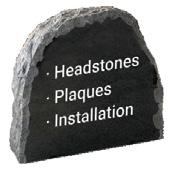



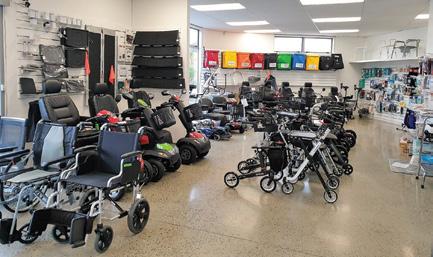

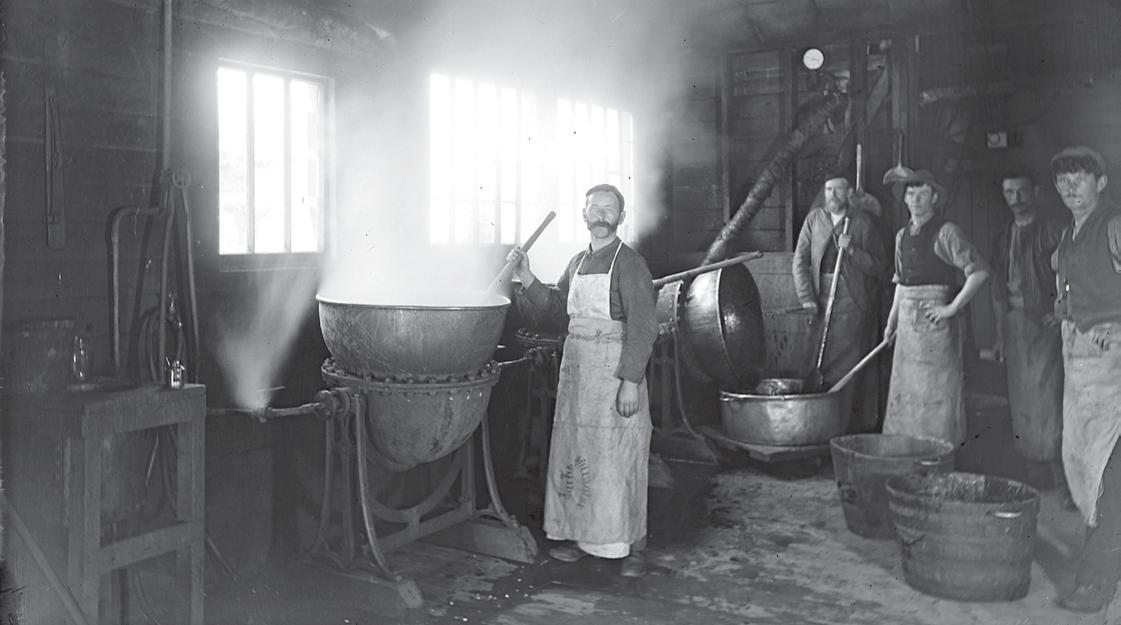
Acentury or more before Pic’s, there was another factory in Nelson turning out thousands of jars a day and dominating the Australasian market. Kirkpatrick’s Jam Factory, located on Vanguard Street (where New World supermarket now stands), was a major employer in Nelson, a huge contributor to the local horticulture industry, and it’s ‘K’ brand was known throughout Australia and New Zealand.
Samuel Kirkpatrick was born in Ireland in 1853 and came out to Dunedin in 1878 after time in the United States working in fruit canneries. Answering an enquiry from a Nelson group interested in starting a fruit processing plant, he was soon contracted to manage the operation. He leased land on Bridge Street, opposite the Queens Gardens, and travelled back to Britain to purchase equipment for the new venture.
In 1881, ‘S. Kirkpatrick and Company’ began production, turning out 1000 cans of fruit a day. By 1884, they were producing 10,000 tins of jam a day, and by 1891, ‘Kirk’s,’ one of the city’s largest employers, was exporting to Australia and beyond. The ‘K’ brand was recognised throughout Australasia and Samuel Kirkpatrick helped Nelson’s economic development by encouraging fruit growing in the region and seasonal employment. He was known to treat his (mainly female) workforce well, and they held him in high regard.
By 1896 Kirk’s had outgrown its original plant and
Kirkpatrick purchased four acres on the corner of Vanguard and Gloucester Streets, fitting out his new factory with the best equipment then available. The factory now stepped up production considerably, and fruit came in from Collingwood, Takaka, Motueka and the Waimea Plains. 15,000 to 20,000 tins of jam could be made daily, and production had also expanded into vegetables, potted meats, jellies, marmalades, tomato sauces, soups, and plum puddings.
Kirkpatrick married Edith Collings in 1896, but sadly she died of tuberculosis in 1899. Kirkpatrick was an avid cricket, bowls and hockey player, served on the City Council and was a major benefactor to Nelson. His support for the growth of orchards and horticulture in the region, along with his success winning awards at world fairs and expos, helped build confidence in Nelson and New Zealand internationally. He died in 1925 and flags around Nelson City flew at halfmast in his honour.
The Kirkpatrick Cannery was eventually bought by an Australian firm but continued to operate, and its subsidiary, The Nelson Fruitgrowing and Development Company continued supporting horticulture in the region, helping make it into a major industry. Watties bought Kirkpatrick’s Jam Factory in 1964, and the last tin of jam was produced in 1971. The factory’s operations spanned nearly a century and had a huge impact on Nelson.
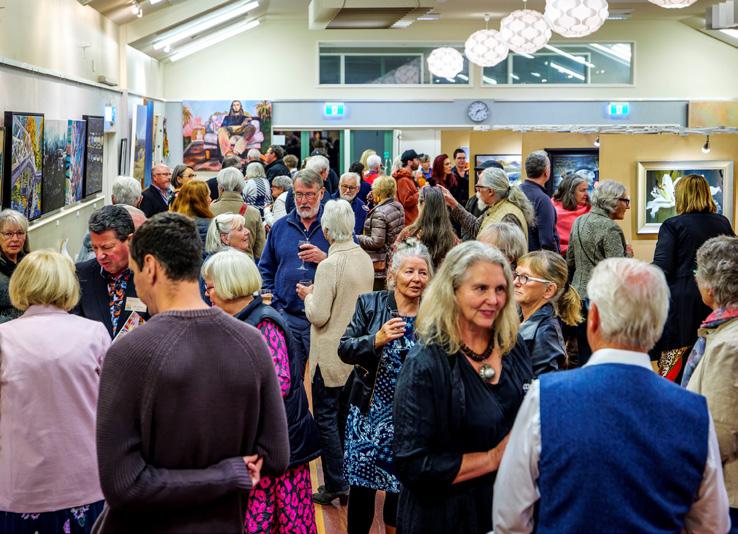
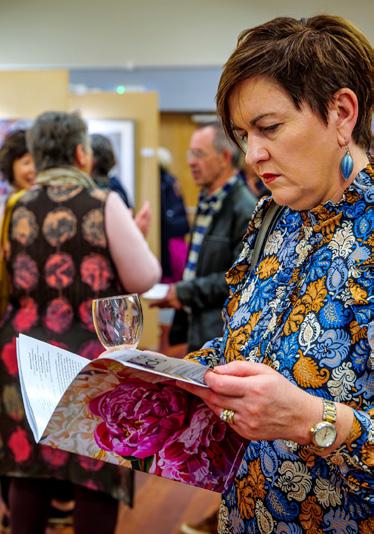
Māpua is set to become the centre of the prestigious annual Tasman National Art Awards for the seventh year running. The awards attract hundreds of entries from artists all around New Zealand and have become an important event on the national art calendar. “We could not undertake this event without our wonderful sponsors and the awards now have over $13,000 worth of prizes to be handed out to the winners,” says committee member Glenis Ambrose.
Managed by a committee of ten and under the patronage of internationally acclaimed marine artist Paul Deacon, the event is a substantial logistical exercise that starts with artists submitting images of a maximum of two pieces of two-dimensional art.
The images go to three selectors elsewhere in the country. They remain anonymous, even from each other, and make their choice of entries to get down to approximately 125 finalists that are the maximum accepted for the awards.
“They have no idea who the artists are so select each piece strictly on merit,” explains Glenis. The result is a diverse and exciting exhibition with work created using a range of media and subject matter.
In addition to the Supreme Award there are four Merit Awards and two Art Focus Awards, the latter which change each year. This year includes a Mixed Media section and one for Still Life. There is also a popular People’s Choice Award with visitors to the exhibition able to cast a vote for their favourite throughout the two weeks the exhibition is open. “It is a real pleasure
to see visitors interacting with the artworks and choosing their favourites,” says Glenis.
This year’s three judges will fly in to select the winners. They include Evan Woodruffe who exhibits throughout the Asia/Pacific region, Jana Branca a portrait artist who has won the Supreme Award for the last two years and Bruce Mortimer who is the winner of numerous awards for his photorealism works in charcoal.
“Having such a professional and accomplished team of judges who work in a diverse range of mediums is really exciting,” says Glenis.
The exhibition at the Māpua Community Hall with free entry is open to the public and held during the school holidays so that all ages can get to experience it. There is ample parking available and wheelchair access.
All works are for sale and, because there are now so many entries from outside the Nelson Tasman area, this is an opportunity for local people to see high quality work from outside the region that they may otherwise never see.
“Because the standard of the work is so high, many people visit the exhibition more than once,” says Glenis. “With so many stunning works on display in such a variety of genres, there is something for everyone to enjoy.”
Tasman National Art Exhibition September 29 to October 12, 9.30am to 4.30pm Māpua Community Hall
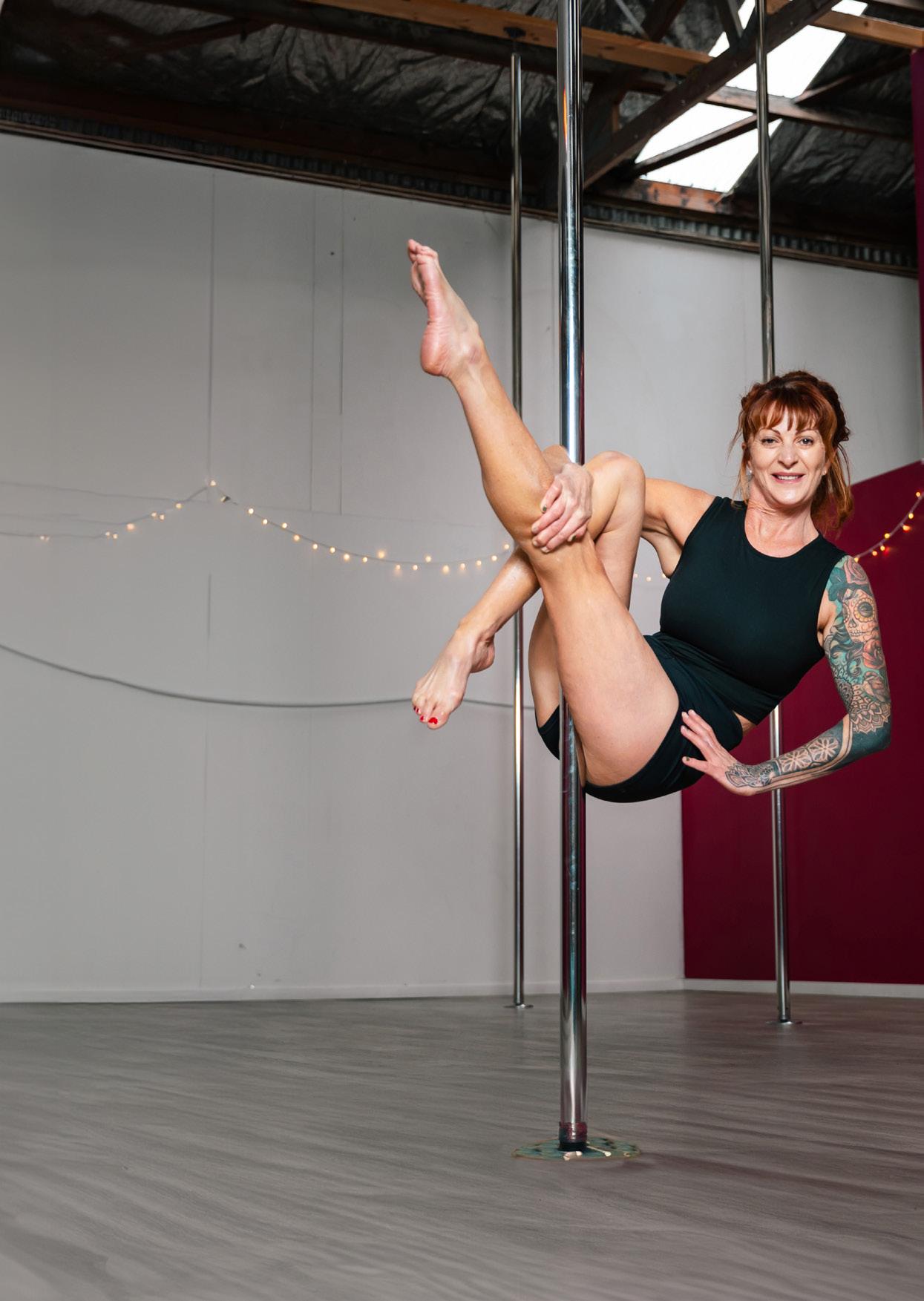
Curious about trying pole? Marcia Pearson says it’s empowering, builds fitness, and requires no prior experience. She encourages people to join a welcoming studio and enjoy the benefits.
When and how did you start doing pole?
I started doing pole approximately two years ago. I was aware of pole for some time and had thought that it would be a fun thing to have a go at but never actually acted on that thought as I was involved with other activities. Then, one day, I randomly did a Google search and Altitude Studio popped up. A look around the studio motivated me to sign up straight away.
How does it make you feel?
Pole is so empowering; it makes you feel really good about yourself both physically and mentally. I always come away from a class feeling 100% positive and happy. It’s very uplifting.
What fitness do you need?
There is no specific fitness requirement. In every class, you can build and learn at a pace that suits you.
What are the benefits of doing pole?
You develop or build on fitness, strength and flexibility; it’s a great alternative to exercising at a gym. Learning a new routine on your “A” side and then your “B” side can be a good brain workout too. Pole also builds your confidence and self-esteem. You meet new people and make new friendships.
What gear do you need?
No gear requirements, just a water bottle, comfortable clothing and a sense of humour helps.
What is your favourite thing about doing pole?
It’s hard to nail down just one thing. Overall, it’s a very good workout. I like the challenge of skin conditioning. Learning new flows and dances is fun and I really enjoy the music. We celebrate each other’s achievements and progressions. There’s always laughter and encouragement.
What advice would you give to someone wanting to give it a go?
Don’t hesitate. The studio cultivates such an inclusive, safe environment. Diversity is totally celebrated and embraced. If you’re a little curious but maybe nervous, grab a friend and come for a look. You’ll feel so pleased you took that step.

Muchof our legal history can be traced back to ancient Greek and Roman laws. Over the years, these laws were tweaked as society changed. New Zealand’s early settlers brought many laws with them, including some about writing down who should get your stuff when you die. Wills have been around a long, long time. Have you made one? Has your life changed since you made it? Does it still meet your needs?
In 2022, the Law Commission began looking to see if New Zealand’s inheritance laws were still fit for purpose, because some old statutes are no longer applicable. 140 changes have been recommended, reflecting modern society, although it will be several years to become law.
The review covers who can make a claim on an estate, challenge a will, and the ability of the court to look at assets outside the estate (eg a trust) in the event of a challenge. Proposals give more clarity for blended families, separated couples, and who parents are expected to provide for. Current law says parents have a moral duty to provide for their children, regardless of age or circumstances. Is this fair when your off-spring may be middle-aged and well-off, or even estranged?
When making or reviewing your will, think about things like family or relationship changes, or an increase or decrease in your assets or debts. Is your executor still able to perform their duty or have they developed dementia? Have any named beneficiaries passed away? Or maybe you’ve changed your mind about leaving a charity gift?
Ideas about ‘inheritance’ are changing. Some people are choosing to support their families now, rather than ‘in the future’. Personal loans from the ‘Bank of Mum and Dad’ to adult children are increasingly com-
mon, but still should be clearly documented to avoid misunderstandings after your death. Your accountant or lawyer can advise how to best structure assets so you can pass on benefits during your lifetime.
So what happens if you inherit some money or assets?
Generally, you don’t pay tax on inherited property, but you may if you sell it. Any income received from the asset – like rent – becomes income and is taxable. You don’t have to share an inheritance with your spouse, and if it’s kept separate from relationship property it can’t be claimed in the event of separation.
Receiving an inheritance of several thousand dollars makes no difference to some benefits but will affect others. For example, a solo parent benefit won’t be affected, but an accommodation benefit will. If the inheritance is an annual payment, rather than lump sum, this will be assessed as income. (WINZ website has information on how an inheritance may affect your benefit, and you must contact them if your financial situation changes.)
Only the writer of a will has a legal right to see it. Once the will-maker dies, the executor decides who can see it and winds up the estate. However, after probate is granted, a will is a public record and anyone can view it by applying to the High Court.
CAB volunteers help you understand your legal rights and responsibilities about anything at all.
CAB Nelson Tasman
Paru Paru Rd Nelson TDC Richmond Community House Motueka Ph 03 548 2117 or 0800 367 222 cab.org.nz
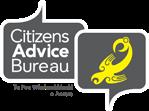
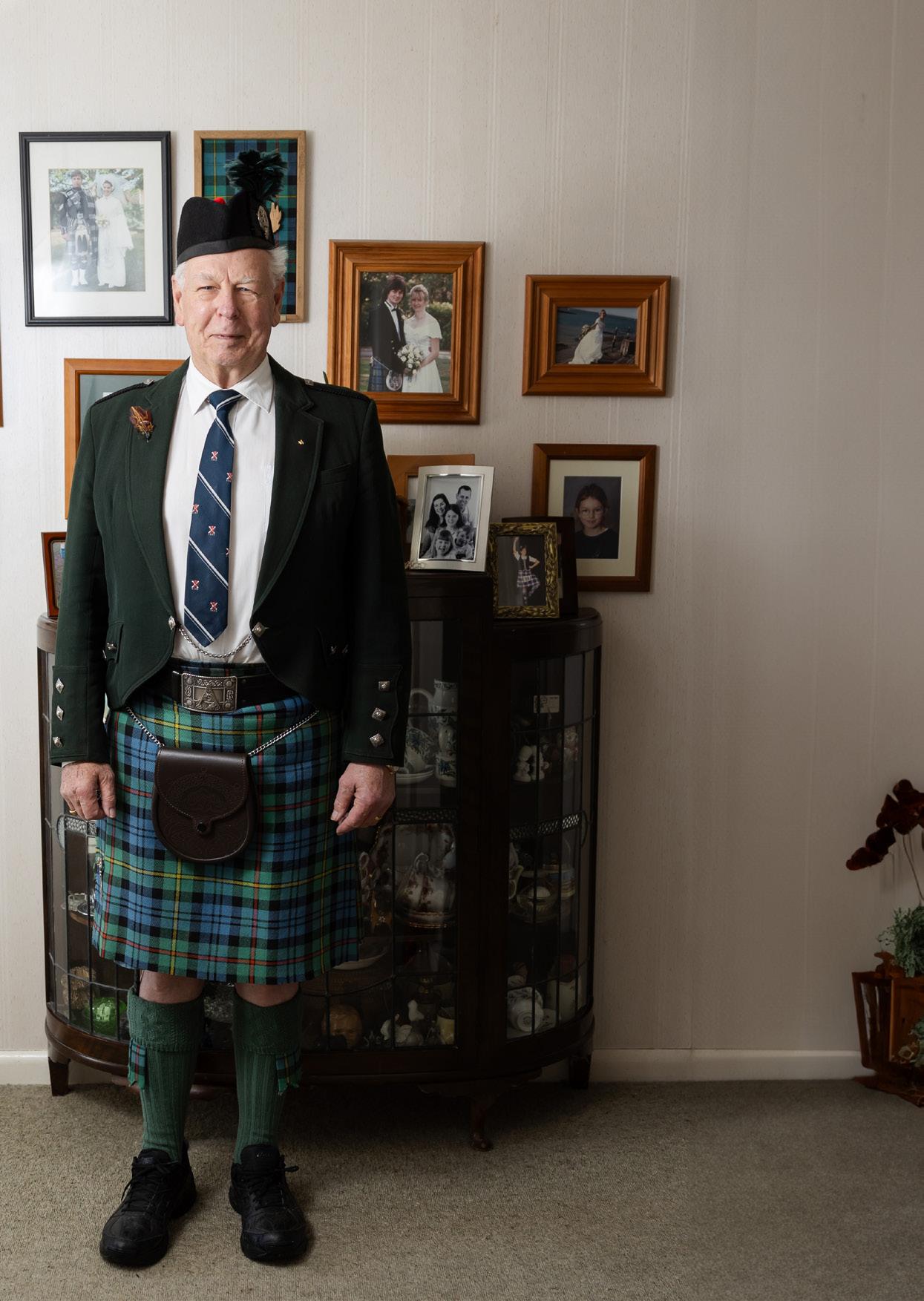
Ian McEwan's piping legacy spans four generations, beginning with his grandfather's role in Christchurch's first pipe band. As a piper for 64 years and a drum major for 20, Ian has brought his love for Scottish traditions to the Nelson community through performances, competitions, and teaching.
By Judene Edgar
It’s a family affair. My grandfather and great uncle were founding members of the first pipe band in Christchurch in 1900. My father was a drummer, and I’ve been a piper for 64 years including 20 years as Drum Major of the City of Nelson Highland Pipe Band. My two sons are both drummers and their children are pipers also.
It’s good to share with the community. Every year we play at the Nelson ANZAC Parade, Isel in Bloom, Rose Day and Pipers in the Park at Fairfield House. We also host an annual ceilidh – a night of traditional Scottish dancing, musical performances, haggis and Scottish country dancing displays. It’s great to have opportunities to play and to give back to the community, but we’re also a teaching band so always open to people keen to learn.
Competing and winning two world championships in Scotland is an absolute highlight. The Nelson band competes in competitions regionally and around the country. I’ve won the New Zealand Mace Flourishing championships three times and was runner up four times. I’ve also competed three times at the World Pipe Band Championships winning the Burtonwood Mace twice. The World Championships are always held in Glasgow, Scotland and there’s nothing like it.
When I worked at Air NZ people would see me practicing my flourishes. In my lunch breaks I would march up and down the grass area in my work uniform throwing my mace up and practicing my flourishes (spins) for leading the band.
They call it Scottish aerobics. The Scottish country dancing was at the Scottish Society Hall where their pipe band had band rooms, so our family of six would go to dance, and I would join them once I had had my piping lesson. So, I’ve also been dancing for 64 years. I’ve had two hip replacements, but I haven’t let that slow me down. The Nelson club celebrated their 71st birthday in August, making it one of the oldest in the country.
I’m also passionate about model trains. I got a Hornby clockwork train set when I was young. Football and cricket (and girls) took over when I was a teenager, but I got back into it when my boys were young, building a model railway in the garage. I helped organise the first Model Railway show in Stoke Memorial Hall in 2005, they’re now held every alternating year with Cromwell at the Indoor Bowls Centre in Stoke.
The City of Nelson Highland Pipe Band are celebrating their centenary this year. On Saturday 28 September they are holding a free public performance, 10am at 1903 Square, followed by a late morning tea for band and ex members at the Rutherford Hotel, then a Ceilidh Dance at 7pm at Sun City Darts Club Hall.
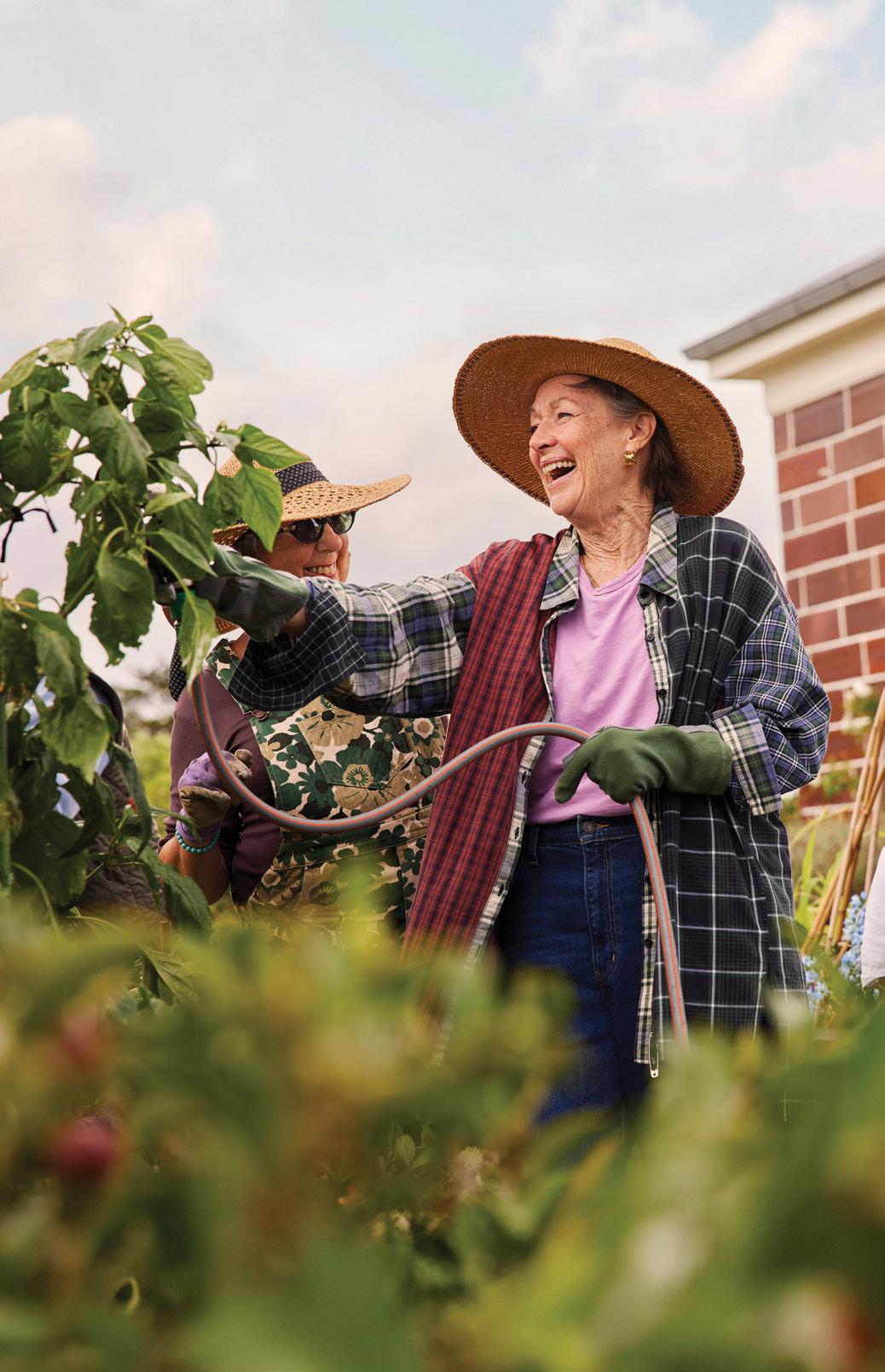
A theory that the human lifespan is purposefully longer than that of most animals so that grandparents can actively contribute to the raising of children has gained strength over recent decades. Alistair Hughes speaks to three families who have grandparents taking an active role in helping to raise their grandchildren.

NPR
health and science journalist Angus Chen has written that once an animal has created offspring, it has done the heavy lifting of evolution and generally begins to decline at the end of its reproductive years. “We, on the other hand, can continue on well past the time when the kids have flown the coop and sometimes celebrate birthdays measured in triple digits,” Chen notes. “So why do our bodies bother holding themselves together when we're no longer passing on our genes?”
Researchers have concluded that active human grandparents continue to ensure their descendants thrive by providing knowledge, care and nurturing which can give their grandchildren the best start in life. Not only that, but they can continue to support their own adult children while further strengthening extended family bonds.
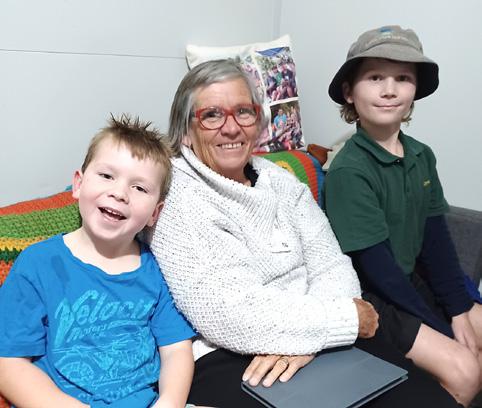
Molina Bilsborough is of Niuean descent and shares her Takaka property with her parents, Carolin and Fred Uhrle, who actively participate in the care of her and her husband Glynn’s three young children.
“My dad is 80, and mum is 71. They’ve got a little cottage on the section, but they eat dinner with us every night. I guess culturally, it is important in Niuean society to take care of your elders, but it's a huge advantage to have more adults in the house.”
Circumstances arose which made this situation mutually beneficial about ten years ago, when Molina’s parents were looking after another granddaughter who had moved to New Zealand from Samoa for medical attention. Meanwhile, she and Glynn’s children had reached school age, and balancing childcare and work was becoming challenging. Molina now works as an educator for children under five years of age.
“I guess culturally, it is important in Niuean society to take care of your elders, but it’s a huge advantage to have more adults in the house.”
“Even though I now work from home, mum still picks up the kids from school because I don’t finish until 3pm. And then we both share the after school activities. This week we’ve been juggling a dentist appointment, school sport and home supervision; it's an easier job for the two of us.”

Molina is certain that there are advantages for the children as well.
“I definitely think our youngest, especially, benefited from having nana and grandad around from the very beginning. Grandparents have the time and the patience to spend helping with his homework and reading with him. It’s really valuable for the older two as well. If they want to go to the beach for the afternoon and mum and dad have time, they’ll take them while we’re at work.”
She adds that her brother’s children sometimes join in as well, “It’s a very extended whānau!”
Sometimes a grandparent can entirely assume a parenting role with their grandchildren. The particular circumstances leading to this situation vary and can involve a considerable adjustment for all generations involved. Grandparents Raising Grandchildren Trust
NZ (GRG) operates throughout the country to provide support, and Motueka-based Vickie Davis has found joining her local group beneficial.
“We have a bond formed with deep love.”
A self-taught upholsterer who runs her own company, Vickies Originals Nelson, she has been raising her eleven-year-old granddaughter Aurora for the past year. There have been huge changes for them both since housing issues affecting Aurora’s family resulted in her move to a new home with her grandmother.
“The first challenge was to help Aurora to feel safe and cared for,” says Vickie. “But now she is absolutely thriving in her new environment and is always super keen to head off to school each morning.”
With Vickie’s help, Aurora has embraced new opportunities by beginning her first season of netball, taking weekly guitar lessons, and art therapy sessions. Vickie believes this is helping Aurora to deal with anxiety, while her own role as a grandparent has shifted now that she is no longer just a visiting ‘fun nanny.’ In fact, she has found herself putting the ‘parent hat’ back on.
“With full-time care, there are huge responsibilities in meeting her emotional needs and providing support with school activities, homework, school trips and camps,” says Vickie. I have taken a break from the Nelson Market for the next few months while she plays her first winter sport.”
The famous market has been a long-term outlet for Vickie’s products, and in the summer months, Aurora benefitted further from helping out at her stall and interacting with the public.
“She even started her own little hobby business called ‘Pinecone Punks.’ We collect the cones, I spray paint them, and my Dad attaches nails so Aurora can decorate them with eyes and hair.”
Proving to be something of a hit, Aurora has saved the money made from Pinecone Punks towards she and Vickie’s dream of a holiday in Australia.
“My parents adore the extra time they get with Aurora now she's living with me, and my friends have been amazing with taking her on little adventures and having us over for a spa and barbecues. As the saying goes, ‘it takes a village to raise a child.’”
Vickie acknowledges that becoming a full-time nanny and caregiver has meant some adapting for them both, but has also found her new life with Aurora to be “wonderful.” “We have a bond formed with deep love”, she says.
Golden Bay office manager Kylie McKenna has managed to incorporate four generations into her extended whānau. A solo parent with four children ranging from one to sixteen, she also works full-time.
“I think it's so hard for single parents like me when it gets to the school holidays, and they've got two weeks off,” says Kylie. “Your employers don't want you to take two weeks off every school holiday, so I'm so lucky that I've got my mum and grandma. I couldn't do it without them.”
Kylie’s mother picks the kids up from school and stays with them until their own mum gets home from work. But when youngest son, Arlo, arrived, a shortage of childcare facilities in Golden Bay meant other arrangements had to be made. Enter Kylie’s 82-year-old grandmother, who took on looking after the new baby so that his mum could continue to support the family. This lasted for eight months until a spot became available for Arlo at the local Early Learning Centre.
“When Arlo went to full-time childcare, grandma really missed him, so she enjoys the school holidays when she can have him back again," says Kylie. But the cross-generational bond formed certainly works both ways. “Arlo just absolutely adores my grandma, and mum as well, and gets really excited when he goes to see them. I think it was really good for him to have that time with them.”
Kylie believes the advantages of the arrangement have been far more wide-reaching than just allowing her to continue working.
“I think it's great for the grandkids - or the great grandkids in my case. It also gives grandma company and
“I think it's definitely beneficial for them.”
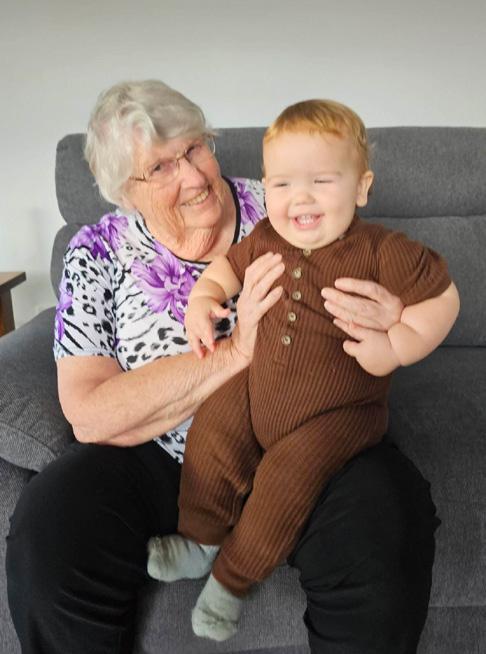
keeps her active. Forming a bond with great grandparents is so important because you don't know how long you’ve got with them.”
She recommends the opportunity to any grandparents willing and able to help out. “I think it’s definitely beneficial for them.”

Writing groups in the Nelson Tasman region offer invaluable support, community, and feedback for local authors, fostering creativity and helping writers achieve their publishing goals. Adrienne Matthews takes a closer look at some of the groups in our region.
American author Amy Neff had her first book, The Days I Loved You Most published recently, for which she is estimated to have received over seven figures for. She puts a big part of her success down to the support received in a writer’s group she established with three other authors to encourage each other in their writing efforts. Extraordinarily, in a world in which it is very hard to get published, all four have had their work accepted for publication.
Writing groups have existed for centuries, with Socrates and his students known to have formed one back in 400BC. Early last century, the Bloomsbury Group brought together Virginia Woolf, E.M. Forster and John Maynard Keynes, amongst others, to share ideas and philosophies, while Ernest Hemingway, James Joyce, Ezra Pound, Gertrude Stein and F. Scott Fitzgerald were some of the writers who made up the Stratford-on-Odeon group.
Writing is a solitary and sometimes lonely occupation and having time out with a group of fellow writers can be a rich opportunity to share ideas and even provide the balm and reassurance needed when words slip temporarily out of mind.
New Zealanders love their books, with over 2000 new ones published each year by established publishing companies. With self-publishing now mainstream, many writers are choosing this alternative option, making the figure considerably higher.
The Nelson/Tasman region has its own considerable share of successful writers and a surprising number of writing groups.
S.T.E.M gets its name from its meeting time – Second Tuesday Each Month – “so we don't forget the day!” explains its founder, author Jackie Cook. It meets from 1 – 3 pm in the activities room at Nelson’s Elma
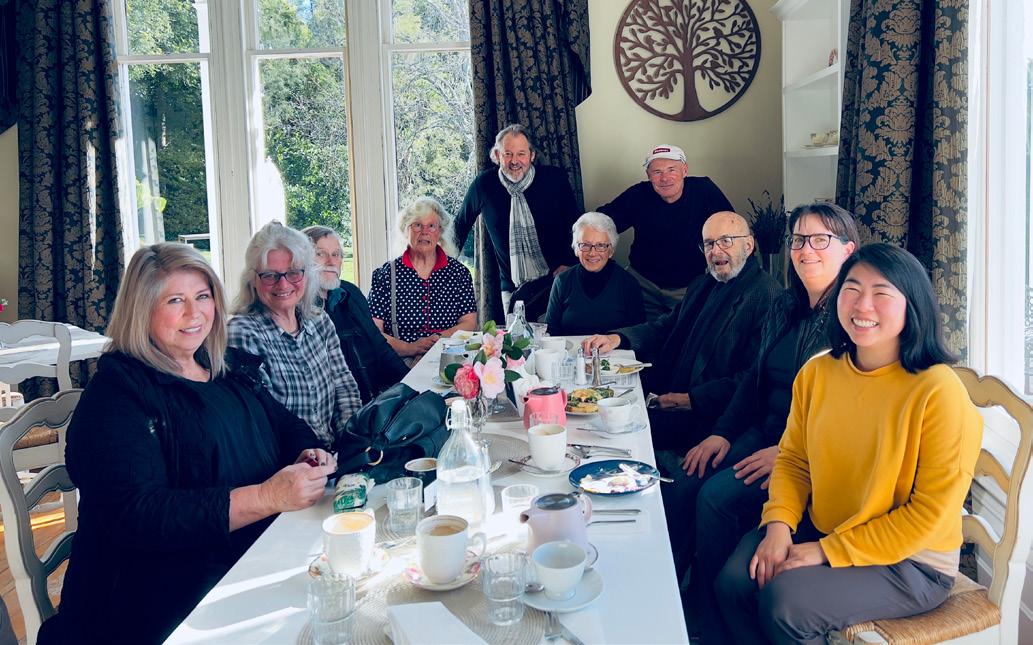
Turner Library. The group is so successful that they have added another meeting on the fourth Tuesday of each month.
Jackie established the group about ten years ago. “At that stage I couldn’t find a group that was doing the things that I wanted, like actually writing, so I talked to a few people that I knew and said, ‘Let's set up our own group,’” she says.
“The library staff were very kind and supported us, they gave us the right sort of workspace, plus tea and coffee facilities. They even provided an initial grant to help us with our first collective publication.”
Member numbers hover between 25 and 30, with around a dozen people turning up for meetings on a regular basis.
“Each month we set a theme so that members can write a piece five to seven minutes long if they want to, and then present to the group. Alternatively, they can bring something completely different. Everyone gets a turn to read out their work and get instant feedback. Reading aloud is so valuable. It helps you develop a good ear for your own style and identify your authentic voice.”
Members write in a wide range of genres. “Everything except porn,” she laughs. “Well, so far. It could be
challenging to listen to. Many start by writing family or local community histories, and the tools of narrative fiction help widen the audience for it, letting writers move on to other genres.”
A more recent annual event has been a Nelson-based NaNoWriMo (National Novel Writing Month). It is an international creative writing project in which participants have to write a 50,000 word manuscript in a single calendar month.
“You commit to writing thirty chapters, one per day. That's 1667 words,” explains Jackie. “It sounds crazy, and even impossible, but it works. You need about an hour and a half to put aside. It really focuses your mind, keeping your story on track, and on theme.”
Most years S.T.E.M self-publish a collection of member’s work. The ten publications completed so far are a fitting example of what a group of writers can achieve and are designed to lead contributors through to individual, longer-format commercial publication.
S.T.E.M is open to anyone with a love of writing. “I put its longevity down to the homemade cake always being a feature of our sessions,” laughs Jackie.
Rock-up & Write operates with a different format altogether. On the fourth Saturday of each month members meet in the Constance Barnicoat Room
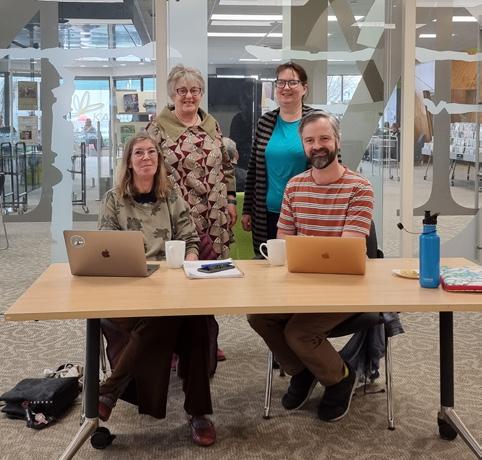
at the Richmond Library from 9.45am - 12.30pm to write. It is run by the New Zealand Society of Authors Top of the South Branch.
Committee member Kate Shaw appreciates the opportunity it gives to write unhindered for a set time.
“We write from 9:30 until 10:45am and then stop for coffee before writing again,” she explains. There are around a dozen members in a wide age range with varying numbers attending each time.
“Rock-up & Write is a collegial group. We support and leverage off each other and, best of all, it’s a space where we can feel that we are legitimately authors. That is both motivating and freeing.”
Writers at Lunchtime was originally established in 2005 under the umbrella of the NZ Society of Authors but is now run by Sue Perkins and Belinda Mellor. Held from 11.15am to 1.30pm on the first Wednesday of every month (except January), members meet in the cafeteria at the Nelson Golf Club. Currently there are around 64 people who belong.
“We have a wide range of ages in our group,” says Sue. “There are people with young children, through to pensioners. You don’t even have to be a writer. You just have to be interested in books and writing. Everyone is welcome. Writing can be a very lonely thing, and the primary goal of the group is to share ideas and enjoy some time out with fellow lovers of the written word.”
The group meet at 11am for a coffee and a chance to catch up with what other members are up to, and they have a speaker who may be an author, expert on publishing or social media. A wide range of writers belong to the group, including those who write about history, ecology, fiction and non-fiction.
“Over the years we’ve also become good friends and the support of other writers means such a lot as writing is a solitary task.”
“We’ve had a screenwriter attend, and one of our current members is writing a sci-fi western. I am currently editing one novel and writing the third book in a trilogy. Writing is isolating. You often feel like you are in very alone, and it can be a bit of a slog. This is one way to get together with others who are in the trenches too.”
“In our mid-morning break, we have a chance to catch up on how everyone is going with other aspects of writing, like publishing. A number of people are self-publishing these days, and there is a lot to learn about that to do it successfully, especially around social media and the marketing necessary to be successful. It is good to bounce ideas off other people.”
Sue and Belinda are themselves published authors. Sue writes in the fantasy genre and has had 35 books published to date.
Golden Bay’s Sue Clark is a member of the Writer’s Group of Golden Bay, one of several writing groups in the area. There are seven people in their group and they meet once a month.
“Around a week beforehand, we email a short story or an extract of work we would like critiqued to the other group members. When we get together, we have already read it, so we can be as constructive as possible. We take turns meeting in each other’s homes and it’s good fun. We set the world to rights as well,” she laughs.
Sue joined around 12 years ago, but the group had been going before that. “I was starting on my second book and was thrilled to find a group like this so I could get some feedback. Over the years we’ve also
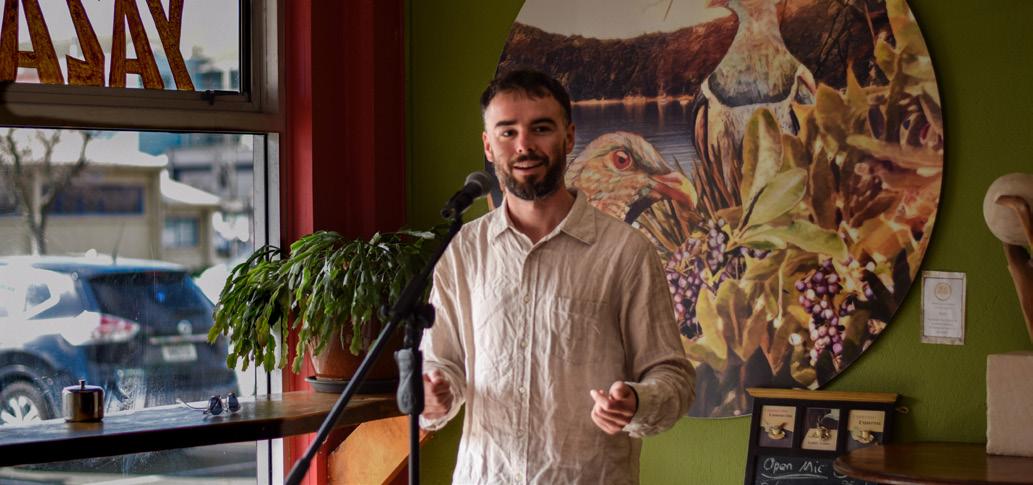
become good friends and the support of other writers means such a lot as writing is a solitary task,” she says.
“We’re quite a cosmopolitan group with members from Germany, Britain, America, in addition to those of us who were born here, so we come from a range of different perspectives.. One of our group will soon be publishing her memoir, and another one has written two books with a Māori theme. I’ve published five novels and one children’s picture book under the name of Suzanne Clark.”
“I sum it up as a place where we celebrate the courage to write, to share, to speak, and to listen.”
Nelson’s Live Poets Society celebrated its 30th anniversary last year and continues to be a strong force for spoken poetry in the region, with monthly meetings held at Yaza Café on the third Tuesday of every month (except December) at 7pm.
Each meeting is an open mic one, giving poets a chance to read their poetry aloud to an enthusiastic and encouraging audience.
Those who want to share a poem or two write their name on a blackboard and there is an emcee to make sure the evening runs smoothly. Dylan Mackie is one of the current organisers and says they generally have between 15 and 30 people attend.
The group has enabled many poets to develop their skills over the years, with some going on to have collections of poetry published and others representing the Nelson region at the national Poetry Slam. Awards have been won and local poets have even performed at festivals throughout New Zealand and some have toured with their work.
Dylan says it has been the inspiration and encouragement for him to move from not writing to writing. “It’s a good community of people and you get encouragement and support for your work.
I sum it up as a place where we celebrate the courage to write, to share, to speak, and to listen.”
An offshoot of Nelson Live Poets has been set up in Golden Bay by original Nelson Live Poets Society founder Mark Raffills.
Writing is a challenging yet intriguing art. No matter how big or small a writer’s group, those who love the written word can find belonging to a group a great way to encourage their enthusiasm to put words on the page and share the pleasure of them, while the opportunity to receive feedback is a gift that can help propel them to achieve more than they thought they could.
Recreational running has always been a popular activity in Nelson, with its vast array of roads, tracks, trails, hills, and mountains. Inevitably, smaller, more social runs often lead to longer and more competitive runs for some. Justin Eade talks to a few runners with serious credentials and finds out some of the challenges they’ve pushed through, where they run, and why they love running so much.
Jacquie Boer, a PR consultant, 54, first got into running when she was 49, as she wanted to do a 10k run before turning 50. But then lockdown happened. Undeterred, Jacquie registered for a run, got sponsorship, and did a 10k run around her back lawn – 162 laps of it to be precise. Starting running was a long-cherished dream for Jacquie and a huge achievement. She lost a lot of weight (nearly 40kg at one stage), and her big dream was to walk up a hill without puffing and to run a long distance. As she was finishing her first half marathon, she stopped and had a cry at having finally done the long run she'd always dreamt of.
Jacquie’s now done two marathons and 10 half marathons, and recently did a 10k run in Florence, Italy, on her honeymoon. “That shows how committed I am to running,” she says.
Jacquie’s favourite run is out to the beach from town, but she also thinks the Great Taste Trail is wonderful. Usually in a week she tries to do about 20km – a beach run two or three times, then one longer run with a hill.
Jacquie likes running on her own, but also socially with the Waimea Harriers Club and Athletics Nelson when they do events. “I’ve made some wonderful friends through running, and I find runners very non-judgmental and welcoming… lovely people.”
Last year in winter, Jacquie made headlines when she went for a run in St Arnaud. Instead of being out for an hour, she got lost and was out overnight in the bush. She wouldn’t recommend that as a running experience, but having done two marathons by then, she knew what being uncomfortable was like, and says that helped her when she was out there all night by herself. She remained calm, and despite Search and
Rescue being deployed, she walked out under her own steam the next morning.
Jacquie says the social side of running is a real bonus, although conversations tend to be about the runs people have done, the runs they’re going to do, and the runs they dream of doing.
She says the best thing about running is mental wellbeing. “I like to run at the end of my workday and clear my head… it makes me feel good… it makes me feel proud of myself for getting out there and doing it.”
And it’s also good for her health physically, so Jacquie wants to keep running for as long as she can.
Mike Ward, 82, an artist, first got into running when he was at secondary school, and wasn’t a bad runner, though cycling also loomed large in those years. He came back to running after ten years off at thirtyish and started racing a year or two later.
Mike has run in the hills around Nelson ever since he retired from teaching 46 years ago. Some favourites are Thomas’ Road, Bob’s Fern Road, Ridge Road, then back along the tops and down Kaka Hill, or out along Bay View Road to the Botanics, and back into the middle of town. “If I could still do that, that’s where I’d be running,” he says. He also rates the uphill mountain-bike trail onto Fireball Road off the Maitai, and then returning to the city via Jack’s Track. “You never get tired of coming back down Jack’s Track and there’s the city and the Bay out in front of you.”
Mike’s done 30 Coast to Coasts, and one across Scotland, so that’s 31 really. Other memorable events have been the North Cape to Bluff, and the Xerox Challenge in 1990, so Mike has pushed himself to the limit and had some pretty unique experiences.
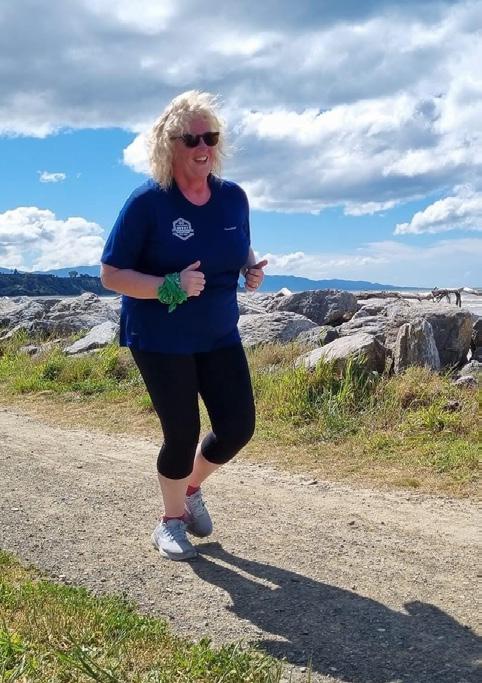
These days, Mike’s routine is a club run on Saturday for an hour or two, maybe two hours on a Sunday walking and running, then two or three times in the morning during the week. He usually gets up around 6am and walks and runs… maybe six or seven kilometers on a good day. Normally there would be hills, but these days he tends to keep to the flat.
Mike says running is important physically, emotionally, and mentally. If you’re physically fit, then you can handle other things, but the most important thing is probably the head space. “I’m thinking of all the times
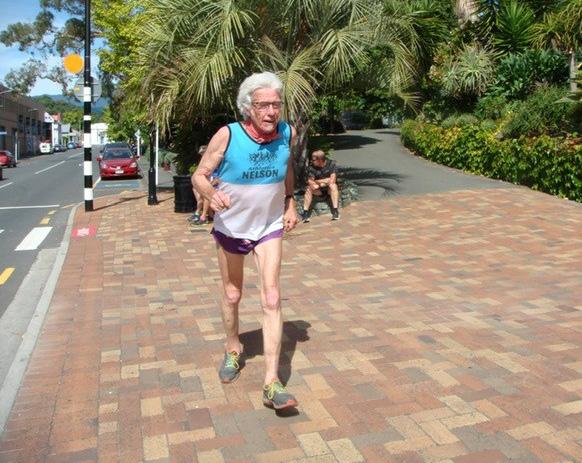
“I’m thinking of all the times when I had a speech to write, or something was getting me down and you go for a run and suddenly the speech writes itself or you’ve figured out what to do about your problem.”
when I had a speech to write, or something was getting me down and you go for a run and suddenly the speech writes itself or you’ve figured out what to do about your problem. There’s also the joy of taking groups out and coming to a place you’ve seen many times, and now getting to see it through their eyes.”
As for how long Mike will keep running, he knows it gets harder as you get older, but he’d like to keep going and has been remarkably injury-free for most of his running career. When he has had an injury, the best solution has been to run through it. And if you can’t run, walk… until you can run again.
Jim Kerse, 75, a retired physical education teacher, always enjoyed running for rugby training, and ran on never-ending farm paddocks around Tapanui, Otago, from the age of 15. He started running marathons in 1977 at age 29 and finds the satisfaction of sweating and being a little out of breath, in combination with being in nature, absolutely priceless.
Jim has run 104 marathons, 60 ultra marathons, and has done 10 Ironman competitions along with five Coast to Coasts. In 2022, the Guinness Book of World Records acknowledged Jim – aged 73 years and 355 days – as the oldest man to run 10 marathons in 10 consecutive days.
Jim’s normal routine is 30-80km per week, interspersed with paddleboarding. He does a mixture of hills and flat running but uses hills more when training for a specific event, such as the Motatapu Marathon. Favourite tracks include the circumference of Saxton Field, the Upper Ngawhatu Valley, Tahunanui Beach to Monaco, and Barnicoat Road to where the paragliders take off.
Jim says he’s enjoyed all the events he’s taken part in, but his favourites feature wide open tussock or green rolling hills. Examples being the Motatapu (Wanaka to

Arrowtown), the Northburn 100 (Dunstan Mountains by Cromwell), the Big Easy (Cross Country snow farm at Cardrona to Clutha River) and Challenge Kuriwao (steep farming country near Clinton). “I’m a bit biased, all these runs are in Otago,” he says.
When Jim was trying to better his times in the 80s, he liked running with others for improvement, but nowadays he’s quite happy to run on his own… “It’s sort of a Zen-like experience.” Jim says he’ll always be active, but in a year or so he plans to tone down the endurance runs to focus on other aspects of fitness, like strength, agility, skill, and even speed! “I hope to do a lot of this at the beach,” he says.
Yvonne West, 72, is retired after 50 years of part- or fulltime secondary school teaching.
She took up running at the age of 35 because, with young children then, she found it difficult to continue with the team sports she’d been playing.
Over her 30 years of competitive running, in addition to many shorter races, Yvonne has completed over 80 half marathons, 20 full marathons, and about 40 major off-road events, ranging from 25km to ultra marathons.
Yvonne recently had a major health event which has curtailed her running somewhat, but ironically, she credits running with saving her life. “Thanks to my running and reading my body well, I saved a possible heart attack.” She has a congenital bicuspid aortic heart valve and, noticing she was slowing down in recent years, she went for tests and was advised she’d
need open-heart surgery and a valve replacement. That happened 11 months ago, and she got back into running four months after surgery. She says that although she’s slower now compared to her earlier days, she’s starting to get it back.
When Yvonne was running seriously, the Kepler Track was her favourite, followed by the Abel Tasman and then the Dun Mountain Trail. She followed an Arthur Lydiard training programme six days a week, which included long hill runs, speed work, shorter flat runs, and races varying from 5km to ultra marathons. The Kepler Challenge Ultra Marathon Race was her most
“Thanks to my running and reading my body well, I saved a possible heart attack.”

memorable event, having completed it 10 times and winning the 50+ age group eight times. The Buller Marathon was her favourite road marathon, winning her age group six times, and posting her fastest marathon time of three hours and 12 minutes.
Yvonne says that physical fitness through running has always been important to her. “I had very few sick days in all my years of teaching and enjoyed the feeling of wellbeing and high energy levels.”
At times, her teaching was emotionally very draining, and the stress release which came from running after school was invaluable. Because she values running so much, she plans to continue as long as she possibly can. “I am very grateful to be alive and still able to run, walk, and bike every day.”
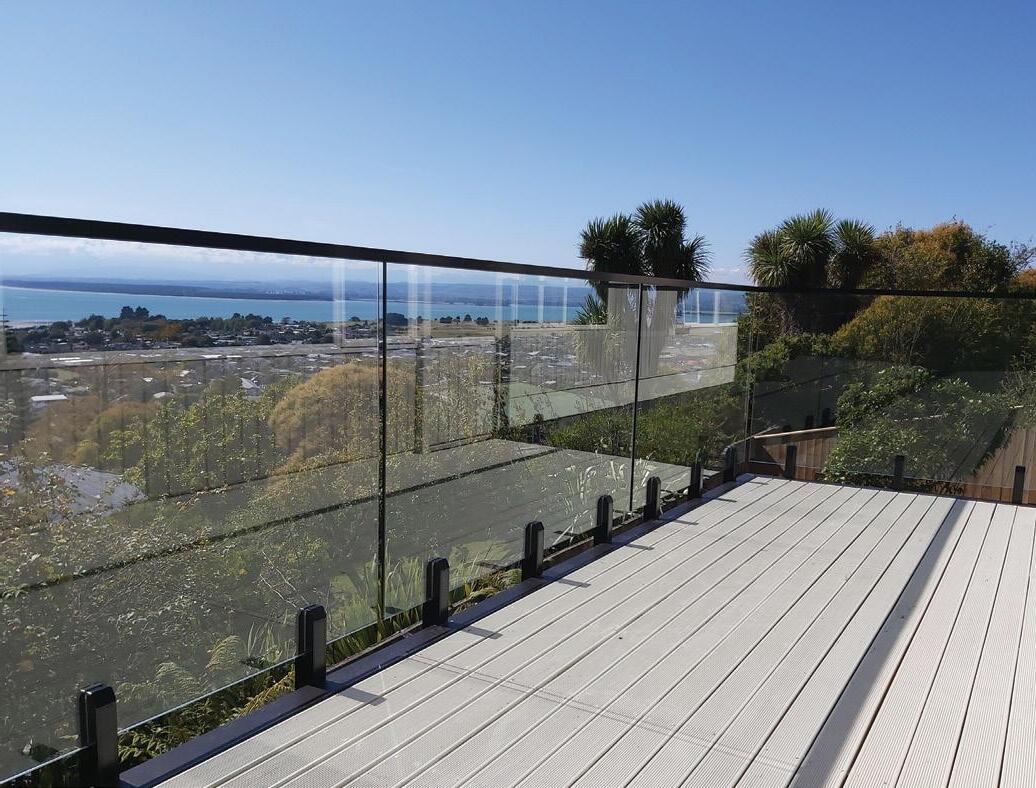
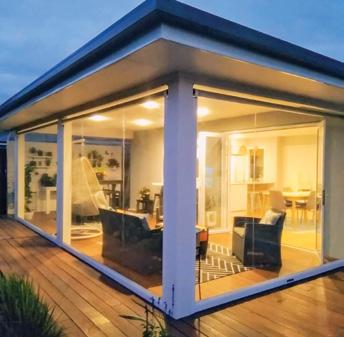
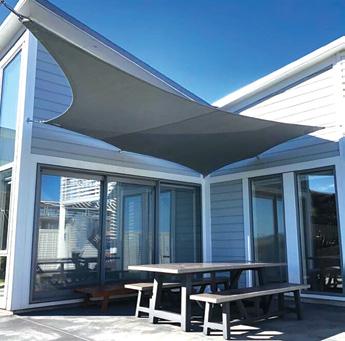



nelsonshadesolutions.co.nz



village has been wonderful wouldn’t have organising leader. “I do three Garden Festival in they might organise for them.
Olive Estate, mobile homes,
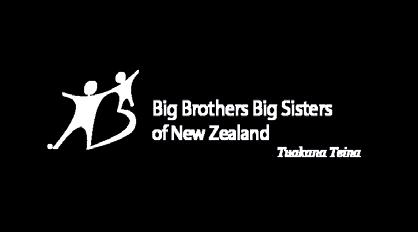
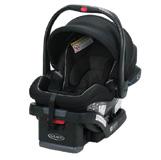

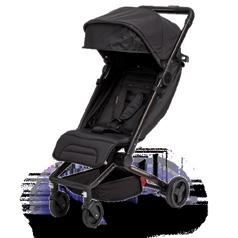
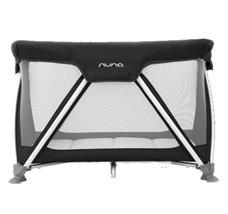
Hire everything your youngest grandchild will need while they stay.
4 Akersten Street, Port Nelson. Tel 03 547 2555. www.babyonthemove.co.nz
The Olive Estate is abuzz with activities for those who want to stay active and enjoy life. Pilates and Strength and Balance classes are proving a godsend to those who attend them in the comfort of the conference room at the Lake House.
Well-known dance and Pilates teacher Jess Hannah runs these classes for over 55’s. Open to anyone, class numbers are capped at 12 which makes for a friendly atmosphere and allows Jess to give everyone the attention they need.
“The Pilates classes concentrate on building strength, mobility and stability, whereas the Strength and Balance classes focus on fall prevention.” explains Jess. “The exercises are adaptable so everyone can benefit.” Classes are ACC approved and supported by their Live Stronger for Longer initiative.
Jess started Pilates after suffering a back injury in her teens. “I found it helped my recovery enormously,” she says. “When the opportunity came to train as a teacher I Ieapt at it.” The training was extensive and professional development is ongoing.
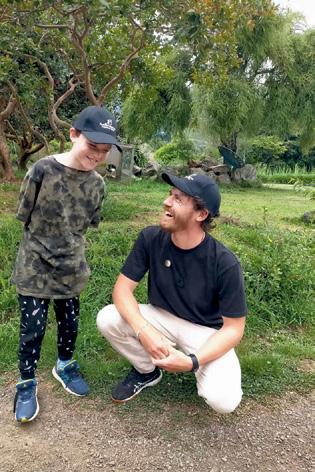
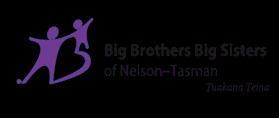
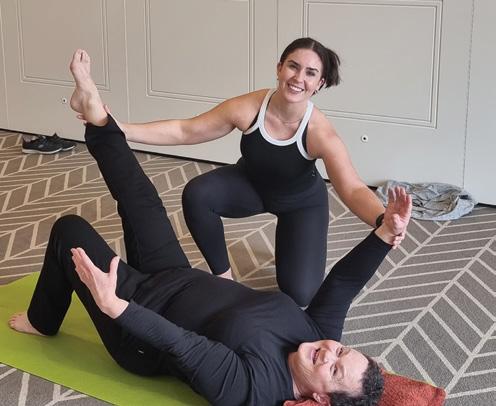
Rhondda Graves has certainly benefitted from attending.
“When I first came here, I could hardly walk,” she says. “The stretching really does help, and Jess is a wonderfully patient teacher.”
Jan Dorman agrees. “Jess is a superb teacher,” she says. I’ve done Pilates before, and after a knee replacement, and the recovery has been sensational. It’s fantastic for your mind and body and you end up far more supple than before. Day to day activities become much easier to do.”
“It is so fulfilling to see my student’s quality of life improving,” says Jess.
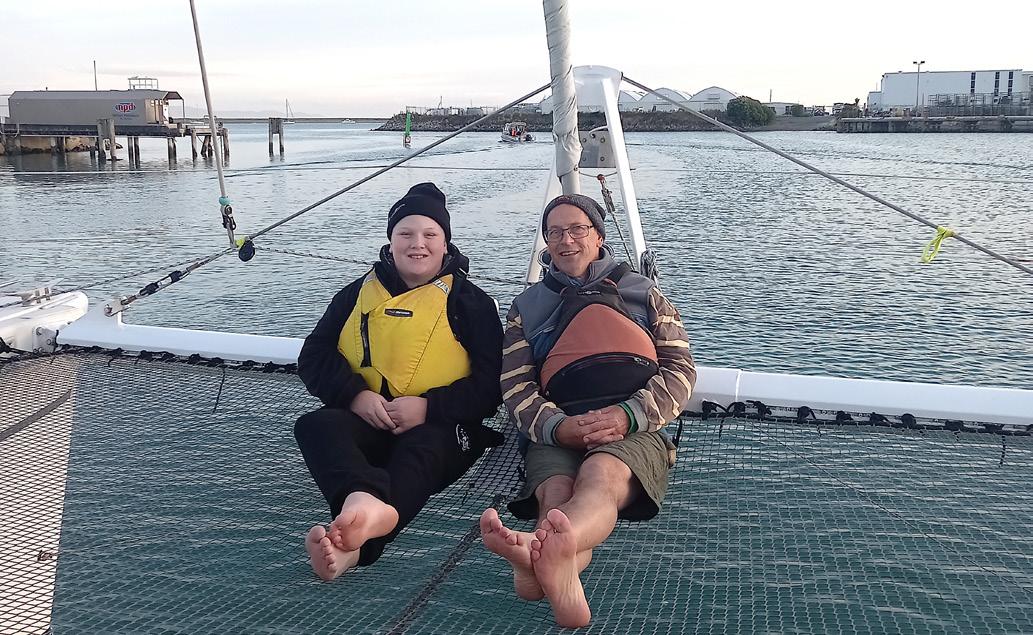
Igniting the potential in every young person by fostering one-on-one relationships with caring adult mentors, Big Brothers Big Sisters (BBBS) of Nelson-Tasman believes in the transformative power of mentorship. Through their program, BBBS support volunteer mentors to provide guidance, and opportunities for youth to thrive, helping them build confidence, resilience, and a brighter future.
Calling the region home for the past 20 years Bruce Nelson grew up just outside Chicago. His passion for white water rafting introduced him to New Zealand in the 1980s, and after meeting his partner Sarah, the couple eventually settled in Nelson. Bruce’s background is in the building trade, but his roles also include support work. During this, Bruce found information about the BBBS organisation and says the idea of becoming a mentor resonated deeply with him. "It seemed like a very good fit for me to get involved with the community and give me a focus that was missing at the time. I have always enjoyed being around young people and was looking for some way of giving back.” Getting started with BBBS was straightforward, he says with the local office providing excellent support and training. With many young people on the waiting list, Bruce quickly received his first match. "We were together for about four years until he and his family moved away from the region. We still keep in touch occasionally and I hope that will continue."
After a brief hiatus, Bruce realised how much he missed being a mentor and soon found himself matched with Neko. For over six years, Bruce and Neko have met up once a week, spending a few hours together each time. "We have a few projects and activities on the go, but right now we are building a hutch for his guinea pigs,” says Bruce. “Neko likes to paddle so we also have the odd adventure on the water sometimes. But, most importantly, it’s about showing up consistently and seeing what he wants to do.” Reflecting on his experience, Bruce expresses deep gratitude for the opportunity. "Being involved with BBBS has been a great experience for me, and I would recommend it. It is an honour to be part of a young person's life and to help contribute to them becoming good humans.”
Program director, Tracee Neilson echoes Bruce's sentiments, saying, “Our program is truly dependent on finding volunteer mentors like Bruce who can give up an hour a week to provide consistency and opportunity for a young person. It’s also hugely rewarding and fulfilling for mentors. We are so thankful to the 176 people across the region currently making a difference in a young person’s life, but of course, we are always on the lookout for more given our waiting list. Thank you, Bruce, for your long service!”
If you are interested in becoming a mentor visit bigbrothersbigsisters.org.nz
For decades Vince Roper has been passionate about making a positive difference in the New Zealand bowling community. Vince explains to Adrienne Matthews why passing his knowledge, skills and encouragement onto others is so important to him.
Bowls is for anyone, no matter what their age. I first tried the sport in my late forties and loved the challenge and precision involved.
With a background in quality management and assurance, along with skills in people development and leadership, I found that once I had reached a good level of competence myself, I had the drive, passion and background to teach others.
I started coaching Tayla Bruce in Christchurch when she was just 13, and I am still her personal coach. Now 29, Tayla is a double world singles champion, - the youngest ever - and the third-ranked female in the world. I love seeing players getting ahead and developing their skills. It gives them such a sense of achievement and me a chance to give back to the sport.
One of my goals now is to encourage Nelson's young people to take up the sport. I recently spoke to a local intermediate school assembly about its joys and benefits. At the beginning, the children all thought it was just for ‘oldies,’ so I told them about Tayla and how most of the current New Zealand women’s side is under 30. By the end, they had nearly all changed their minds and almost 30 students had signed up to play in Stoke Bowls' 16-week after-school programme this coming summer.
Bowls is good for the body and mind. You need to have good coordination and balance, and when you
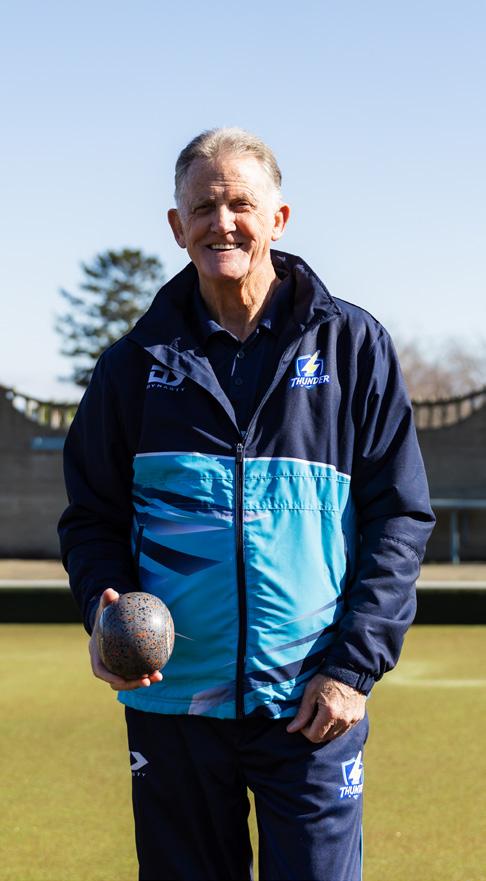
are competing, excellent endurance. It can also be played by people with disabilities and is very good for developing focus, concentration, and learning to manage emotions.
The game is played in many countries and can take you around the world to compete if that’s what you want to do.
The best thing about being a coach is empowering others and giving them the skills to take the sport as far as they want to. I see it much like a parent preparing their children for life, experiencing that warm glow and sense of pride when you see them do well.
I encourage anyone who wants to have a go to do so, no matter what age. You'll be made very welcome at any club. Just turn up and talk to someone. You may be surprised at the fitness and sense of satisfaction it gives you. It is also a great way to meet others and enjoy some fun and camaraderie. Life is all about recognising opportunities when they come along. You don't learn anything from not trying.

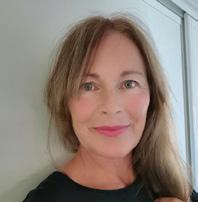
Accumulating clutter is easy, and it happens without you realising. Decluttering is a job that should be done regularly – but of course, most of us don’t have the time to rationalise and reorganise our drawers, cluttered corners, and overstuffed rooms that often. Marrit Walstra-Russell, owner of Tidy Tulip, shares some tips on how to get started when downsizing.
1. Give yourself plenty of time, start small and start early if you know a move is coming up.
2. Understand your space limitations, take note of the space you are moving into, like how many bedrooms, how large is the pantry, is there a garage?
3. Get rid of duplicate items, you probably don’t need three toasters and 21 mugs!
4. Be ruthless, it’s time to let go. Sell or donate your good items and know that it will find a good home, doesn’t that feel great?
5. Only take the items you love and that you use.
If you’re still struggling to make those decisions of which items to let go, ask yourself the following questions:
1. Do I actually love it? Or is it something I was gifted and am holding onto out of guilt? You are allowed to let go of gifts you don’t like, let it go to someone who loves it.
2. Do I have another one of these that could serve the same purpose? We often have duplicate items lying around, make a conscious decision of letting those go.
3. Do I use it often? Or is it something I could borrow from someone instead?
4. Would I buy this item again right now? Or was it an impulse buy that I’m not using?
5. Did I even remember I owned this? If you don’t, you probably didn’t even miss it, so why hold on to it?
6. Would I miss it if it were gone? If you can’t decide, set it aside for two months and see if you do miss it. If not, then consider donating it.
7. Does it fit with who I am today? When decluttering your wardrobe for example, ask yourself the question: how do I want people to see me right now, not who I was five years ago or who I want to be in five years, but be you, now.
8. Will you repair this, realistically, or will it stay in that box in the back of your cupboard? Harsh question, but if you are not going to repair it, then it’s time to get rid of it.
The above questions can be used in decluttering any area in your home, it might be that you start with your wardrobe, or your garage or a pantry. You’d be surprised when you do start decluttering, how you roll from one area into the next, because seeing the results and having ‘a place for everything and everything in its place’ truly feels amazing.
Love knitting? Join the Nellie Knitters to create garments over a cup of tea and lots of chat.
Garments knitted go to a wide range of charities across the region as well as the hospital and local kindergartens. All welcome and materials are supplied. 1pm - 4pm on Mondays or Wednesdays weekly alternating.
Held at Nightingale Library Memorial, 2 Beach Road, Tāhunanui, Nelson
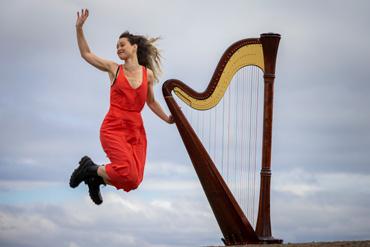
A fun event for all the family and all ages and abilities to encourage more people to ride bikes.
Join us for a day of family fun, bike safety, and cool activities.
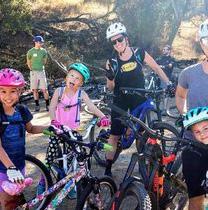
Lots of different events and information. Bike buses will be running from Nelson and Richmond to the event.
Sunday 3 November 2024
The Nelson Arts Festival returns for its 30th festival this spring, bringing 11 days of unmissable arts experiences for and with Whakatū, including the iconic Mask Carnivale on Friday 1 November.
Thursday 24 October - Sunday 3 November 2024
September 14 & 15, 7pm Guru of Chai by Indian Ink
Mondays, 1 - 4pm
September 17, 5 - 8.30pm and October 22
Nellie Knitters
Housie for Hospice
September 22, 9 - 12pm Tahunanui Beach Clean up
Thursdays 9.30 - 11am Device Advice
September 28, 10am
29 September
For many other events see itson.co.nz


Top of the South Motorcycle Group Daylight Savings ride
The Distinguished Gentlemens Drive, fundraiser for prostrate cancer and Mental Health
October 3, 7.30pm Chor Farmer Concert, Japanease Choir
October 11, 7pm to 10pm
October 19, 12 - 4pm
October 20, 6pm
October 24 – November 3
November 3
November 3, 12 - 4pm
Theatre Royal
Nightingale Library
Two Thumbs Brewery
Meet at Beach Reserve
Age Concern Office Bridge St.
Filco Farm and Sport, Quarantine Road
1 Cadillac Way gentlemansdrive.com
Nelson Centre for Musical Arts
Narvarathri - Hindu Festival To be confirmed
Diwali, a Hindu celebration with food stalls and performances
Founders Heritage Park
The Kingdom of Bling, Richard O’Brien Theatre Royal
Nelson Arts Festival, with Mask Carnival on 1st November
The Nelson Half (marathon)
Life Cycle Bike Festival, a fun event to encourage more people to cycle
Various venues
Saxton Field
Broadgreen Intermediate
Nelson’s community gardens are not just patches of greenery, but vibrant hubs where sustainability meets creativity, and neighbours become friends. Each garden tells a unique story of how dedicated volunteers and innovative practices are transforming local landscapes.
Nestled near Burrell Park, the Tāhunanui Community Garden is a testament to how a legacy can blossom into a thriving community resource. The land was originally gifted by a previous property owner and, after its purchase, was divided between the park and a productive garden.
Managed by enthusiastic local volunteers, the garden has grown into a flourishing space. “Everything is reused or recycled,” says Colleen Moss, one of the dedicated volunteers, “we’re doing it to show what can be achieved with the minimal input of money in an organic way.”
From repurposed tools to compost bins made from old fencing, the garden operates with a focus on sustainability. The produce grown here is freely available to those who need it.
The Waimārama Community Organic Gardens, established over 23 years ago in the Brook, have become a hub for organic horticulture education and practice. Managed by trustees and volunteers, the gardens feature 57 plots available for lease by community groups and individuals. They also offer workshops and demonstrations aimed at teaching and inspiring people to grow food organically.
The site is home to a variety of activities, including beekeeping, harakeke (flax) cultivation for a local weaver, and the Compost Group’s operations. Sally Rees, a dedicated volunteer for 11 years, says all those interested should come along, “On Wednesday mornings we have our volunteer sessions and welcome anyone who wants to help out.”
Located at the Victory Community Centre, the Victory Māra Kai Community Garden focuses on educating the public about successful food growing, fostering local connections, and promoting kai resilience.
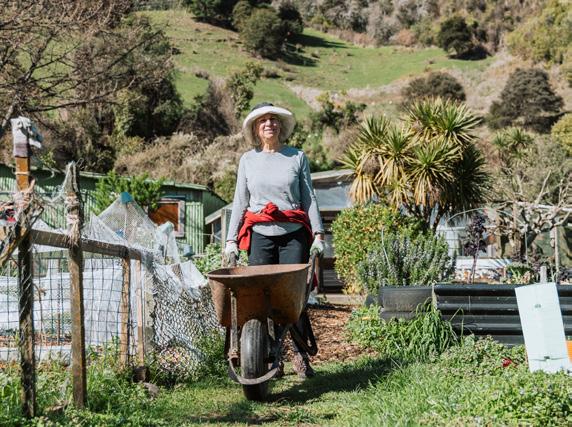
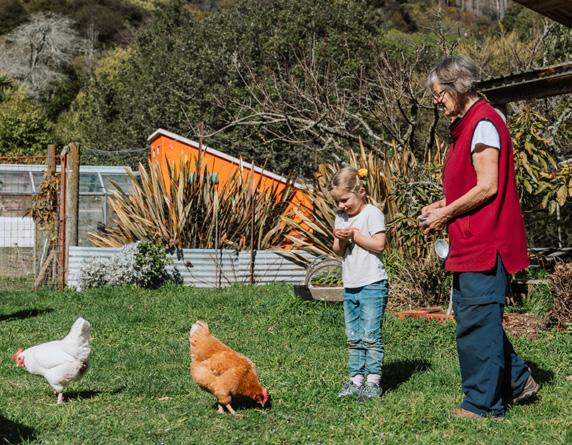
Volunteers have worked diligently to create a productive space with cedar-raised beds, making gardening accessible and manageable. Various groups can adopt a bed, growing nutritious food while learning from experienced gardeners. The garden serves as a vital resource for the community, especially in an era of rising food costs.
These community gardens not only enhance Nelson’s green spaces but also offer numerous benefits for volunteers. They provide a rewarding experience by promoting physical health, reducing stress, and fostering connections with others. By growing fresh produce, they support local food security and offer valuable lessons in sustainable practices.
Volunteering in these gardens is a fulfilling way to positively impact both personal well-being and the broader community.



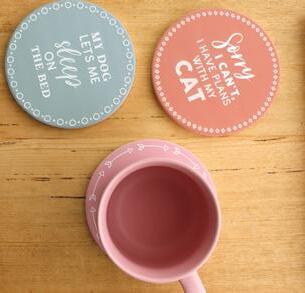

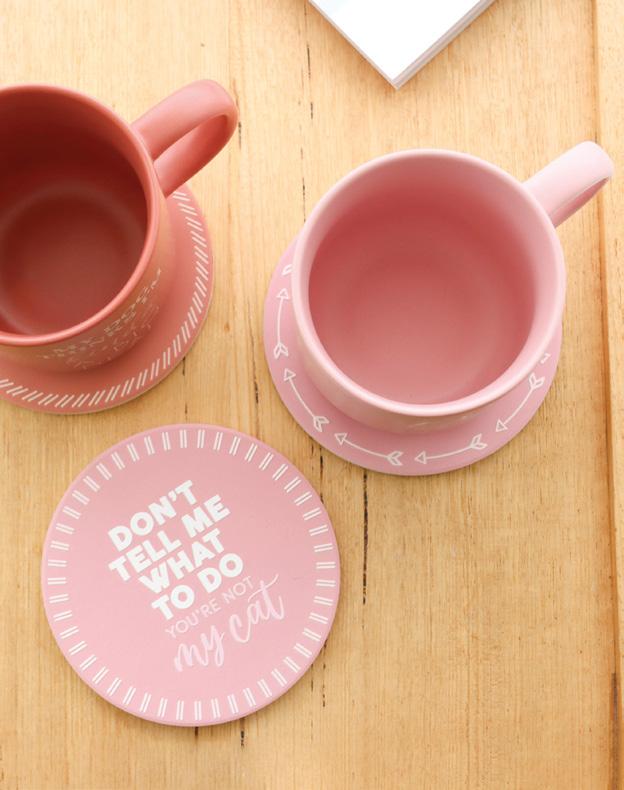



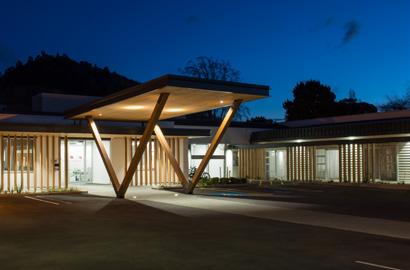
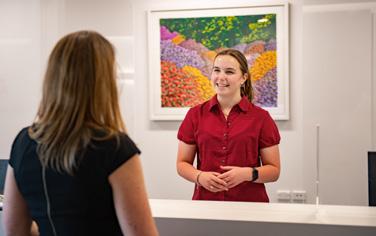
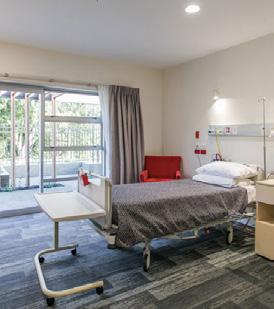








As we age it’s natural to become more conscious of our health. However, for some older adults, this concern can grow into health anxiety — a persistent worry about having or developing a serious illness. This anxiety can significantly affect quality of life, leading to unnecessary stress, frequent doctor visits, and avoidance of activities. Patricia Pataki from PP Therapy says, fortunately, there are ways to manage and reduce health anxiety.
Health anxiety often involves excessive worry about symptoms that are minor or common, such as a headache or muscle ache. You may find yourself frequently checking your body for signs of illness, seeking reassurance from others, or researching symptoms online. While it’s important to stay informed about your health, constant worry can become overwhelming and may increase stress, which can actually make symptoms feel worse.
1. Stay informed, but avoid overloading yourself
While it’s good to be informed about health, avoid constantly reading or watching news about diseases or medical conditions. Instead, stick to reputable sources and consult your doctor for information that is specific to your situation.
2. Focus on what you can control Engage in activities that promote overall well-being, such as regular
exercise, a balanced diet, and getting enough sleep. These actions help maintain good health and can reduce anxiety by giving you a sense of control over your body.
3. Practice relaxation techniques
Techniques like deep breathing, mindfulness, and meditation can help calm your mind and reduce anxiety. Incorporate these practices into your daily routine to help manage stress.
4. Stay connected
Stay connected with friends, family, and community groups. Sharing your worries with others can help put them into perspective.
If you are genuinely concerned about your health, don’t hesitate to see your doctor. It’s essential to address legitimate health concerns and rule out any serious conditions. However, if your doctor finds nothing wrong and you continue to worry, it may be time to address the anxiety itself.
Consider speaking with a mental health professional, such as a counsellor or psychotherapist, who can help you develop strategies to manage your anxiety. Cognitive-behavioural therapy (CBT) is particularly effective for health anxiety, helping you to change unhelpful thinking patterns.
It’s important to remember that health anxiety is a common experience, especially as we grow older. If you find yourself worrying excessively, know that you are not alone, and it’s okay to reach out for help. Talking to a mental health professional or even confiding in a trusted friend or family member can make a significant difference.
Patricia Pataki is a board-registered psychotherapist and counsellor, working in private practice. She has offices in Stoke and Nelson Central. pptherapy.co.nz

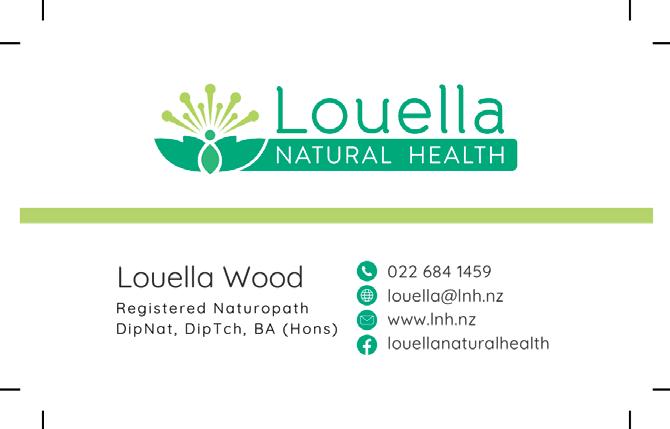

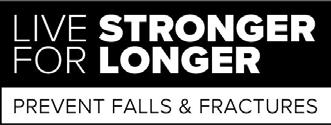

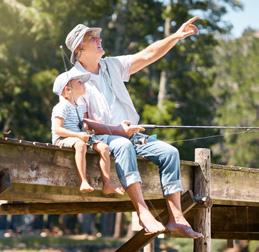


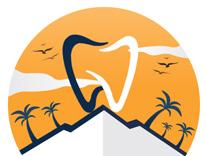
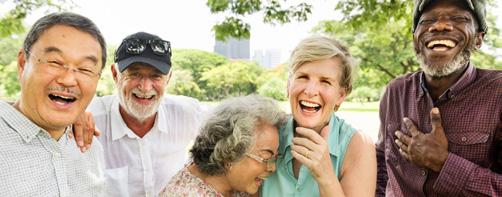
The way we look at health and medicine is changing as scientific research brings to light new information which is clearly demonstrating that there are many things we can do to improve our health before disaster occurs and illness sets in.
Louella Wood of Louella Natural Health has first-hand experience with how medicine and doctors save lives, having almost lost hers due to a congenital heart condition in 2015. “My life was saved by medical intervention but I also strongly believe there is a place for naturopathy in the primary health system because it can help so many people to live well and work alongside conventional medicine,” she says.
With a BA (Hons) degree in Environmental Studies and now a qualified and registered naturopath, Louella is a passionate advocate for preventative health care while also offering a range of skills and treatments to help those suffering from detrimental health conditions.
In 2016, Louella established her first successful practice, Whangarei Natural Health, but the prospective joys of living in Nelson drew her here last year.
“My practice involves looking at all the body systems for underlying causes of disease, using a holistic approach that takes into account the body, mind, spirit and emotions. It is a complementary form of medicine,” she explains.
A contributor to ill health can be stress. “A great many people are suffering from anxiety and stress, and there are many things that can be done to help alleviate that,” she says. “Having a healthy gut is important, as is exercise and spending time in pollution-free natural environments. Learning how to breathe properly can help enormously, as can staying away from well-known triggers such as sugar and caffeine, highly processed foods, those high in saturated fats, and alcohol.”
With an interest in the part genetics plays in health, Louella is also a certified Fitgenes practitioner, able to conduct DNA tests that are analysed to produce a health and wellbeing profile. She also arranges and analyses test results for Organic Acids tests, comprehensive stool analysis, microbiome mapping, DUTCH hormone testing, allergy testing, and small intestine bacterial overgrowth breath tests.
“As we age, we don’t absorb nutrients as well as we did when we were younger, but there are things that can
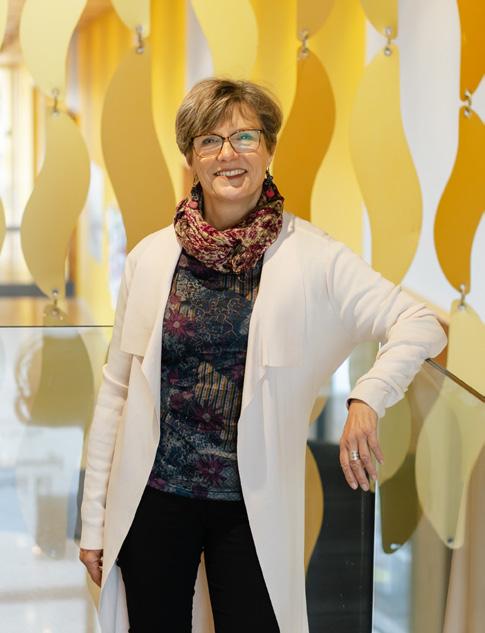
be done to improve this, which will contribute to our quality of life,” says Louella. “Anything I prescribe is carefully checked against any medications and supplements clients are taking to ensure there are no negative interactions.”
“I want to be the ambulance at the top of the cliff, not the bottom,” she says. “Prevention is the ideal way to avoid distressing health issues, and I appreciate being able to work with other health practitioners to provide an integrative approach that will ensure the best possible outcome for clients.”
Louella Natural Health 022 684 1459
Pūtangitangi Greenmeadows Centre, Stoke lnh.nz

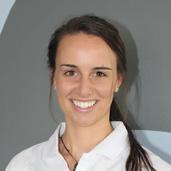
Staying fit and healthy is essential at any age, but as we get older, certain fitness myths can hold us back or even lead us astray. Brianna Wehner from Align Functional Fitness sets the record straight on some common misconceptions, so you can make the most of your workouts and enjoy your best life.
“If you don’t feel sore or sweat a lot, it wasn’t a good workout”
The old saying “no pain, no gain” can do more harm than good. The truth is, not every workout needs to leave you drenched in sweat or struggling to walk the next day. In fact, if you’re constantly sore, it could be a sign that you’re overtraining. A balanced approach to exercise — varying the intensity, mode, and type of workouts — allows your body to recover properly, reducing the risk of injury and overtraining.
“You need to work out for at least an hour”
Don’t let the idea that workouts need to be long to be effective stop you from reaching your goals. A highly effective workout can be accomplished in as little as 30 minutes. Quality trumps quantity, so focus on finding a routine that fits your lifestyle and keeps you consistent.
“You can target certain areas of your body to burn fat”
Spot reduction is one of the most persistent fitness myths out there. Unfortunately, you can’t target fat loss in specific areas. When you lose fat, it happens gradually across your entire body. Instead of focusing on specific areas, aim for overall fat loss through a combination of cardio, strength training, and a healthy diet.
“Cardio is the best way to lose weight”
Cardio is great for your heart and can burn calories, but relying on it alone won’t transform your body as quickly as you might hope. Strength training is essential for building muscle, which in turn boosts
your metabolism and enhances your cardio workouts. The more muscle you have, the more calories you burn—even at rest.
“The scale is the only way to measure progress”
The number on the scale isn’t always a true reflection of your progress. Weight can fluctuate based on factors like water intake, diet, and time of day. Often, as you lose fat and gain muscle, the scale might not move as much as you expect — or might even go up. For a more accurate measure of your progress, track changes in your body measurements (arms, waist, thighs) and pay attention to how your clothes fit. If you do use the scale, try to weigh yourself at the same time each day for consistency.
“The more you train, the better”
It’s easy to think that more is better when it comes to exercise, but rest is a critical part of any fitness routine. When you work out, you break down muscle fibers, which need time to rebuild stronger. Scheduling one - two recovery days per week allows your body to repair and strengthen, ultimately leading to better results. Recovery days don’t mean complete inactivity — you can incorporate gentle activities like walking or stretching to stay active without overtaxing your body.
By understanding and overcoming these myths, you can create a fitness routine that’s safe, effective, and sustainable — helping you stay strong and healthy well into your later years.
alignfunctionalfitness.com
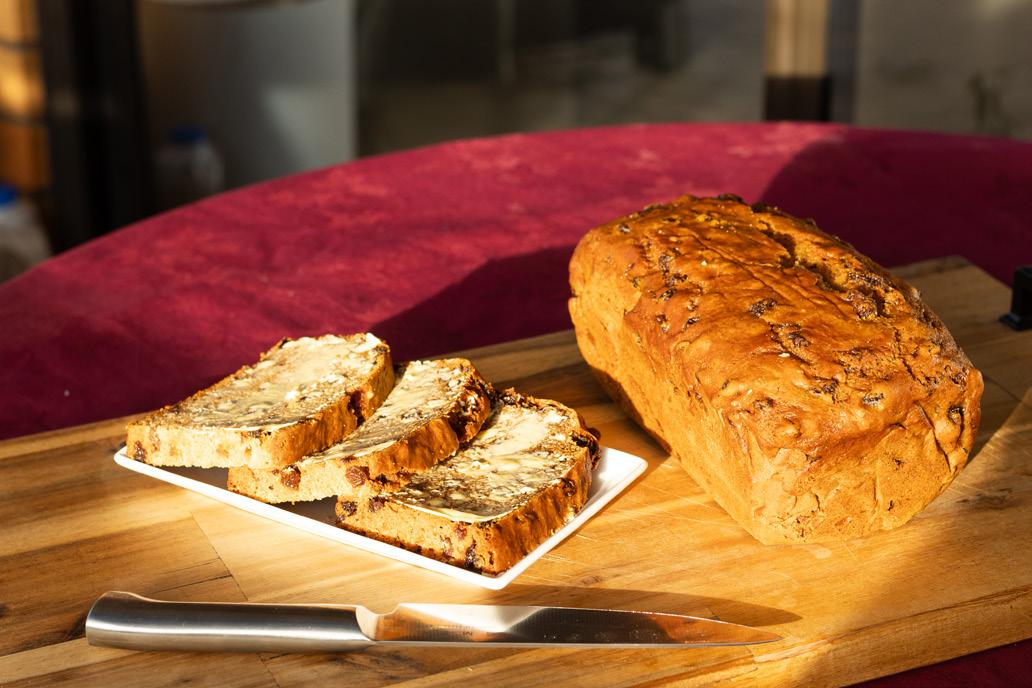
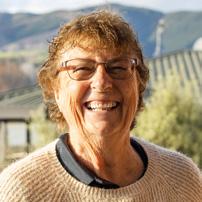
INGREDIENTS
4 oz (1/2 cup) sugar
8 oz (1 cup) flour
1 cup sultanas
½ oz (14g) butter
1 tsp baking soda
1 ½ tsp baking powder
1 tbsp golden syrup
Found within the cherished pages of a community fundraiser cookbook lies a gem of a recipe that has stood the test of time. This beloved Sultana Loaf, shared by Sally PakiPaki, has become a staple for Tuesday housie gatherings in Stoke. Sally’s loaf recipe is a crowd-pleaser packed with tradition and flavour. Whether you’re a seasoned baker or just starting out, enjoy baking this classic, and let it become a favourite in your home too!
METHOD
Put all ingredients in a bowl, except for the flour and baking powder. Add 1 cup of boiling water and stir well. When cool, add flour and baking powder. Pour into a greased loaf tin, and bake at 370°F (187’°C) for 1 hour.
Never a day goes by that I am not grateful for the variety and accessibility of enchanting natural places in our Nelson/Tasman region. Rough Island and its surrounds, including Greenslade Park, are two of my favourite areas to blow the cobwebs from my mind and get my heart beating.
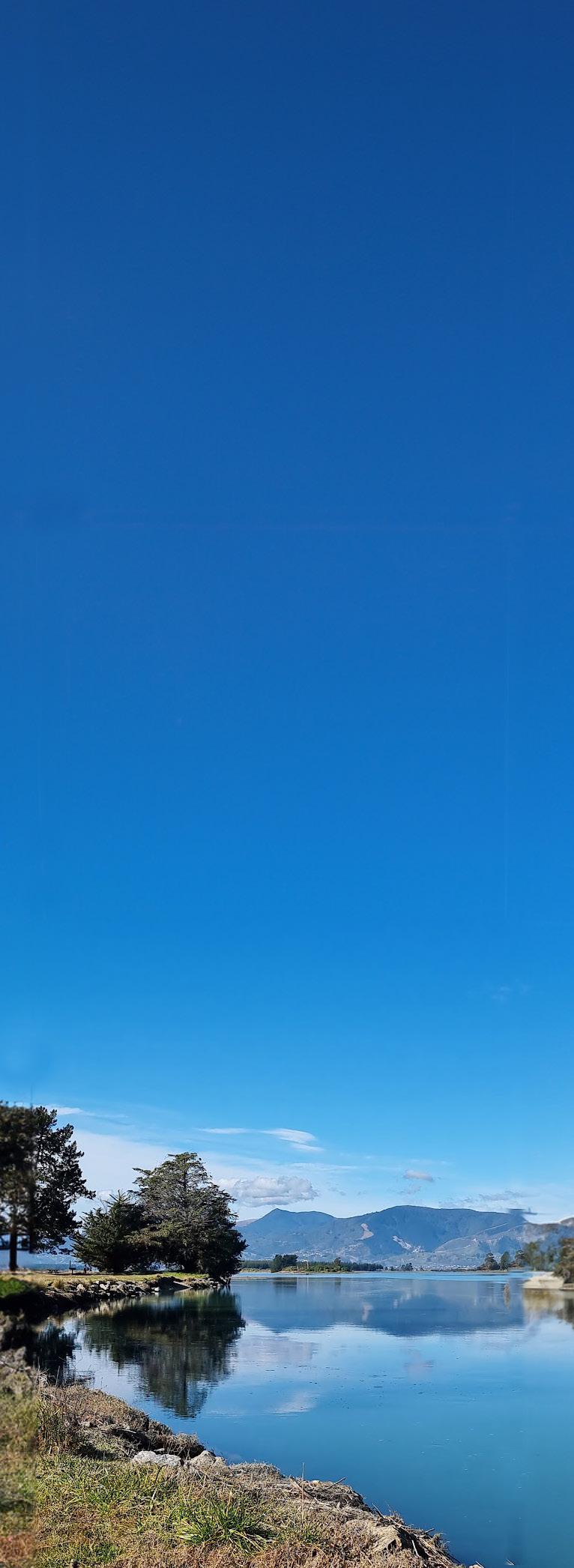
by Adrienne Matthews
The world is as wide as it can be this patched up morning winter confounded by early spring slip sliding away
A shag glides to its nest big fish in mouth the fledglings ravenous always big feather coats to fill this diving summer when it comes Richmond hills a chequerboard of blues shells once here embedded in their clay banks by time tide crack of earth Down here water sweeps around the bend pine green under dying macrocarpas into cerulean blue
A long boat glides deft oars silent before catching the shore the paddler dries himself in the crisp air it’s not an easy life he says laughing the water goes this way and that just an hour each side of tide to get there and back He has circled Rough Island inlet to channel back to inlet making the day sing
If you have a poem you’d like to share with our readers please email it to bestlife@topsouthmedia.co.nz
Stella Chrysostomou of VOLUME reviews four new books. volumebooks.online

Jenny Erpenbeck (translated by Michael Hofmann)
$28
Granta Books
In Jenny Erpenbeck’s International Booker Prizewinning Kairos, the personal and the political are intertwined. It’s the late 1980s and the GDR is on its last legs. East German society, with its face to the East but fascinated by the sounds, smells and occasional taste of the West, is unravelling. Katharina is 19, a student, intelligent and attractive. Hans, a writer, is married and in his 50s. It’s not his first infidelity, but it is her first love. However you view this relationship, the power lies with Hans: he controls the situation, even when his wife temporarily kicks him out. Katharina waits for him, dresses and behaves as he instructs, and this obedience, despite her misgivings, only accelerates over the following years as the relationship becomes increasingly chaotic, with Hans’s manipulation and violence at its centre. What draws them together is a moment, and what will pull them under is that also: a moment — Katharina’s supposed betrayal. The moment that slipped by cannot be grasped again — and here, in the tumult, is East Germany. Erpenbeck lets us travel back — walk the streets, visit the cafes and theatres — to a possibility that became a lie. Here is the dream of a better society, prey to the manipulation of political structures. Kairos is a book presented as two archive boxes of notes, receipts, journals and diaries, cassette tapes (of accusations), books, and records. The first box/section is a meeting of minds and hearts, of a relationship with possibilities and the hopes; the second, an awareness that all is not right — deceit and despair have led to chaos that is allencompassing, personally and politically. The novel draws you in, despite your misgivings about the characters’ relationship, and Erpenbeck’s language is emotionally taut: the early crispness in her sentences changes in tone and pace as the novel progresses: the passages become longer, the sentence structure more convoluted, doubt creeps along the lines. The final pages are ambiguous, and surprisingly satisfying.
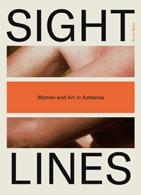
Sight Lines: Women and Art in Aotearoa
Kirsty Baker (editor)
$70
Auckland University Press
This beautifully produced and illustrated book selects 35 artists — individuals and collectives — from the entire length of art-making in Aotearoa and the entire breadth of artistic practice (including painters, photographers, performers, sculptors, weavers, textile artists, poets and activists) to examine how women have used their art-making to explore their relationships to each other, to land and water, family and community.
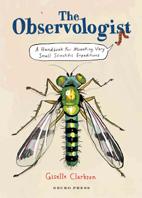
The Observologist: A Handbook for Mounting Very Small Scientific Expeditions
Giselle Clarkson
$40
Gecko Press
The everyday world around us is full of creatures and features of the natural world, just waiting for a curious young person to pay them good attention. This wonderful book, quirkily illustrated and packed with just the right information, is the best companion for expeditions into the natural world just under our noses.
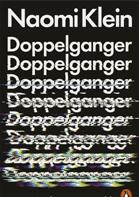
Doppelganger: A Trip into the Mirror World
Naomi Klein
$30
Penguin Books
Naomi Klein found she was chronically being mistaken for someone else — someone with harmful far-right views. As Klein tried to understand what was going on, she found herself becoming obsessed with the workings of conspiracy fantasists and the very real damage they do to our collective lives. This breathtaking, urgent book won the 2024 Women’s Prize for Non-Fiction.

your
Our premium double glazing using Low-E glass provides superior insulation by restricting heat loss through your windows. Retrofit Double Glazing to your existing frames. Find out today, call us! Ph 543 7300 I Viridian Glass Nelson SHOWROOM - 9 Tokomaru Place, Wakatu Estate, Stoke nelson@viridianglass.net.nz I viridianglass.co.nz


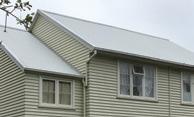

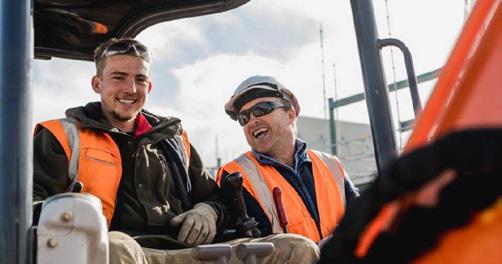


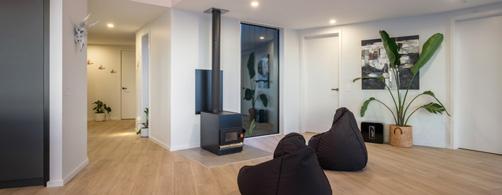



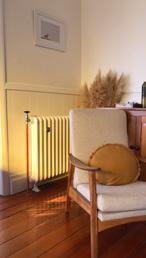


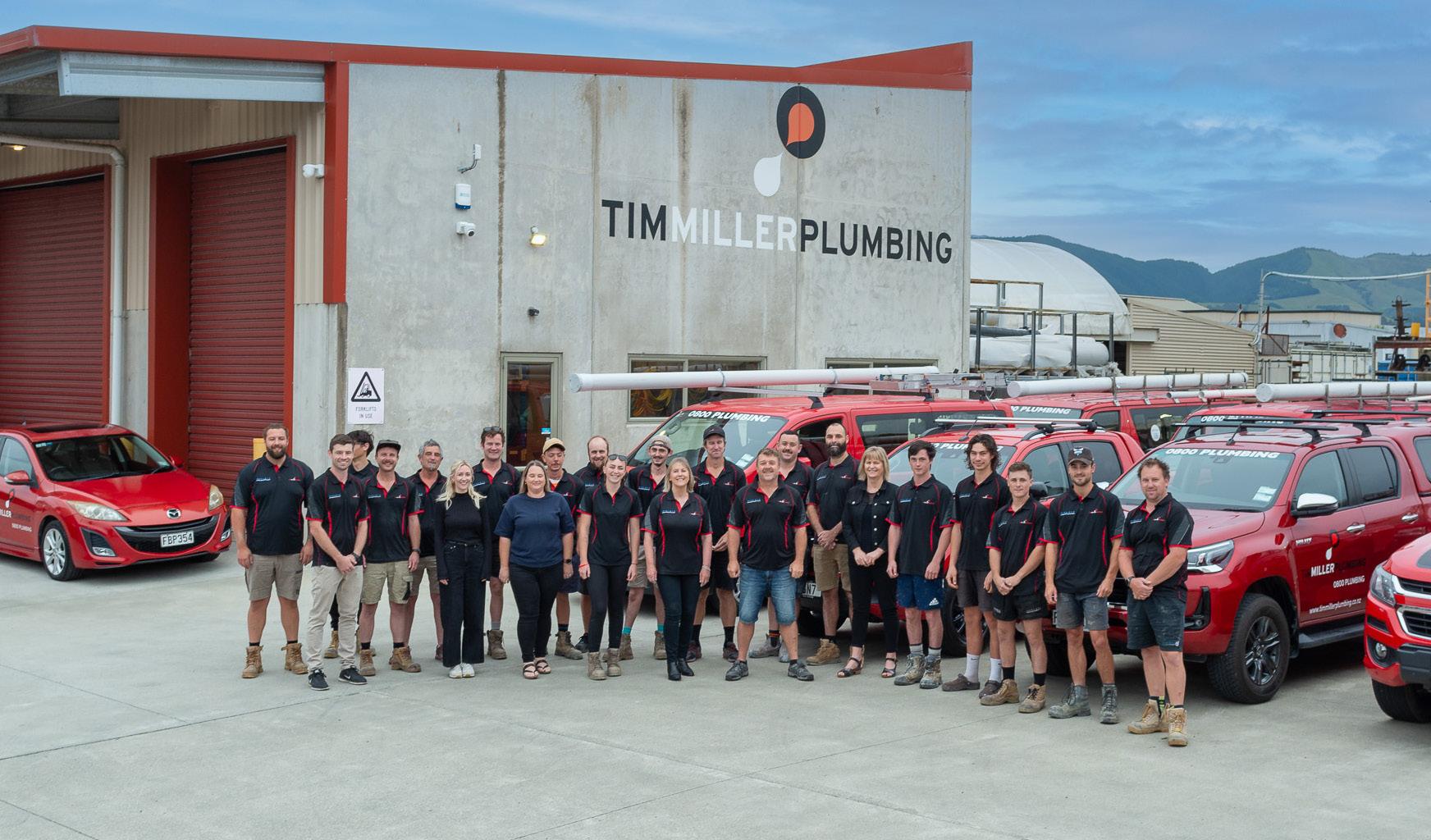
Tim Miller Plumbing has been providing top plumbing solutions to residents and businesses alike for decades now, ensuring that every need, no matter how small, is met with professionalism and expertise. Locally owned and operated, Tim Miller Plumbing prides itself on its long-standing reputation for excellence and service. Founded by Tim Miller in 1986, the company has grown from a one-man business into a trusted name in the industry, built on these principles. From routine maintenance to complex installations, the team approaches every job with the same outstanding level of care and attention to workmanship.
One of their standout features is their commitment to after-hours service. The team understands that plumbing emergencies don’t always happen during business hours, and they make it a priority to be available when their customers need them most. Whether it’s a burst pipe in the middle of the night or a blocked drain on a weekend, Tim Miller Plumbing is just a phone call away, ready to assist. Highlighting the company’s inclusive approach, company director Anne Miller says, “We believe that every customer deserves the best service, no matter the project.” This philosophy has endeared them to the community, as customers know they can rely on Tim Miller Plumbing for any plumbing issue.
Knowledgeable, experienced and highly skilled, the team stay up to date with the latest industry standards and techniques, ensuring that their work is always of the highest quality. “Each plumber undergoes training and is equipped to handle a wide range of plumbing tasks, from residential repairs to commercial installations, and has the support of more experienced staff.” In addition to their technical expertise, customers often comment on how stress-free their interactions are, thanks to the team’s commitment to excellent customer service. They take the time to listen to their customers, understand their needs, and provide tailored solutions that often exceed expectations.
Offering both commercial and domestic plumbing services, drainage, gas fitting and underfloor heating, the company’s dedication to quality service extends beyond just plumbing. The team is actively involved in the community and are committed to training apprentices and investing in young people offering them a trade and an opportunity for their futures. Their long-standing reputation makes Tim Miller Plumbing a trusted partner for all plumbing needs. Whether you’re dealing with a minor issue or a major project, you can count on them to deliver exceptional service every time.
timmillerplumbing.co.nz



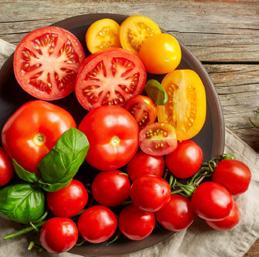
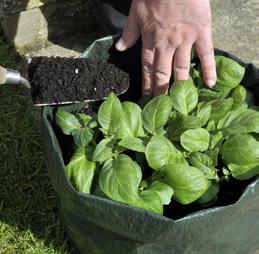







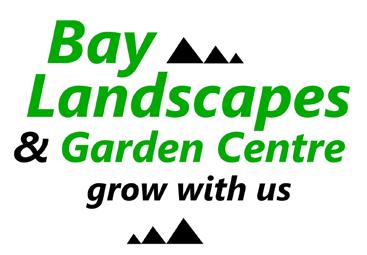


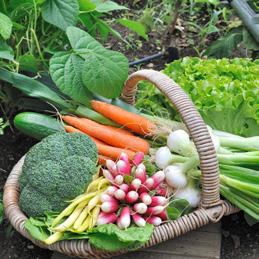
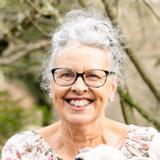
Spring is well underway and my perennial garden is at its peak. Everywhere I look, there are beautiful blooms smothering my collection of hardy cranesbill geraniums, amongst other treasures.
For as long as I can remember, flowers have held a very special place in my heart. Dad grew sweet peas every year, especially for picking, while Mum put together the most beautiful flower arrangements year-round.
Flowering annuals are a great way to enhance your existing plantings, and some are perfect for cutting.
Cosmos and zinnia are two of my ‘must-haves’ in the summer garden, and now is the perfect time to sow or plant them. Both come in varying heights and thrive in the garden or in containers.
Cosmos have long been a favourite of mine. They are worth their weight in gold in the summer garden, flowering for months. Their frothy, fern-like foliage adds a softness to existing plantings. Tall cosmos, such as ‘Double Click’ have fully double flowers in shades of cranberry, white and pink. ‘Cupcake Mix’ come in shades of pinks and white and have bowlshaped, crinkly flowers that look exactly like cupcakes. Both varieties grow to approximately one metre. If you prefer shorter plants, ‘Sonata’ varieties are the perfect choice, growing to around 50 cm.
A few years ago, I grew zinnias for the first time. I had always thought their bold colours were slightly garish but I quickly realised their true beauty. The most common varieties available in garden centres are dwarf with small flowers. I needed a bit more impact for my vases, so I trialled ‘Pumila’; a mix bearing 7cm semi and fully double flowers. They grew to 60cm and flowered for months.
The next season I decided to grow ‘Benary’s Giant’. These beauties are available in gorgeous separate colours as well as a mix. They are tall, growing to approximately 1.5m. Pinching the top growth out regularly before flowering will make them bushier. Some of my favourite colours are bright pink, golden yellow, lilac, lime, purple and deep red.
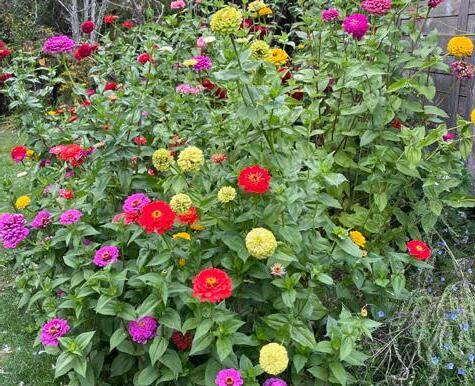
I could wax lyrical for hours about this stunning variety. The flowers start small and flat, opening slowly over the coming weeks to 11.5cm double blooms, eventually forming the most voluptuous, large pompoms. The flowers hold for weeks on the plants and last 7-10 days in a vase. The first time I dead-headed them, I gasped with delight. The flowers get a beautiful lavender tinge underneath the lower petals.
Butterflies, bees and other beneficial insects adore cosmos and zinnia. I regularly see monarch butterflies flitting from flower to flower. At the end of the season, birds such as goldfinches and greenfinches feast on the seeds.
Both of these beautiful annual flowers are very easy to grow from seed. I use premium seed-raising mix and just cover the seed with a mixture of two-thirds seedraising mix and one-third fine vermiculite. The vermiculite helps to retain moisture. They can be sown in trays outdoors or sown directly into the garden from late October onwards.
If you would love more information about growing cosmos or zinnias and where to purchase seed, please do not hesitate to email me at heirloomperennialplantnursery@gmail.com. I would love to help.
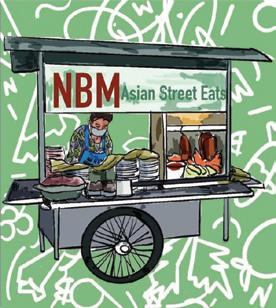

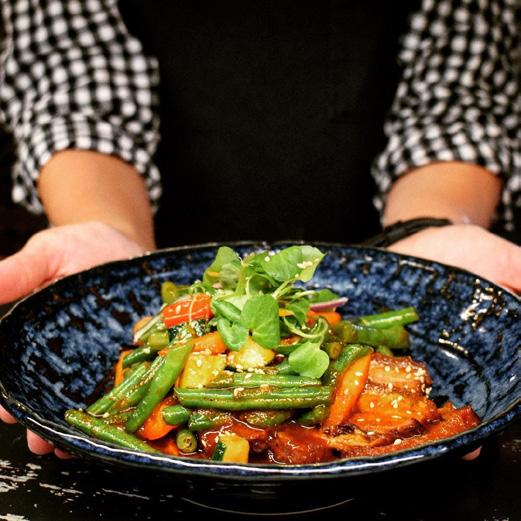

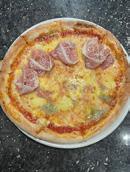
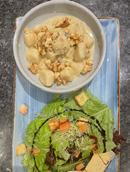
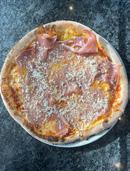
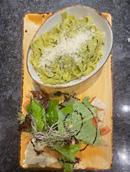

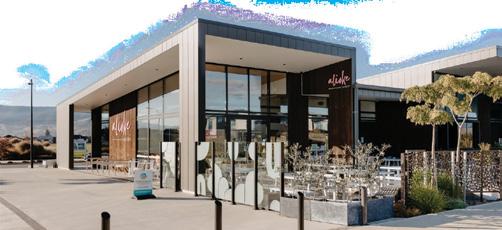
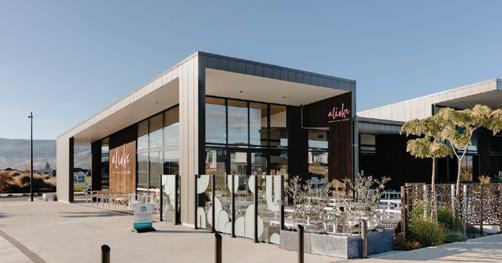
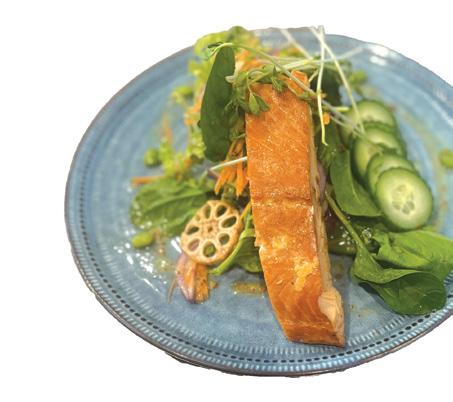

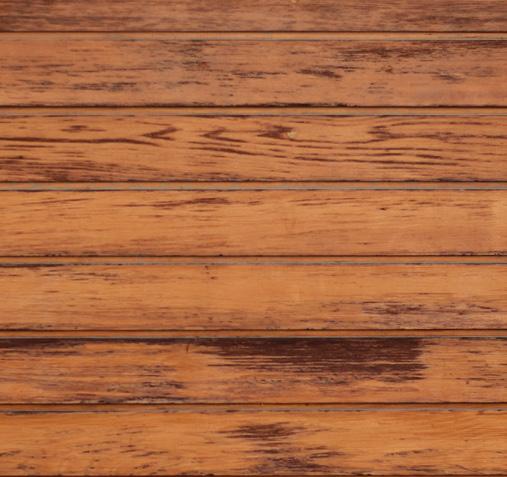
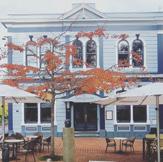
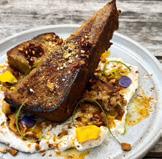
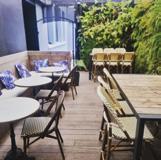
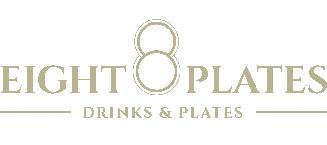
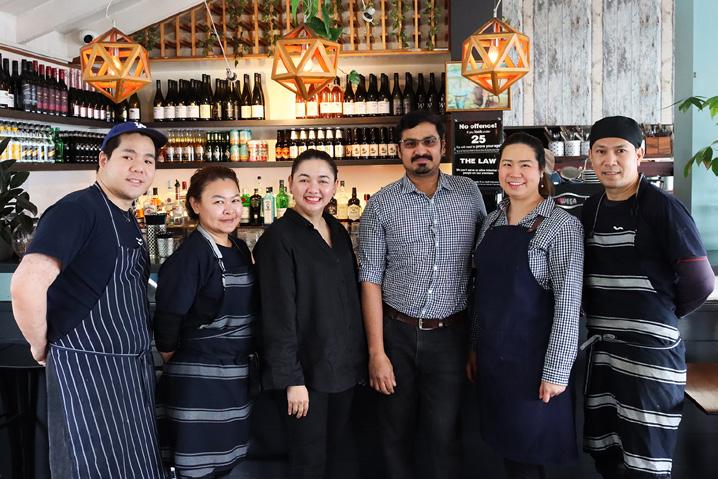
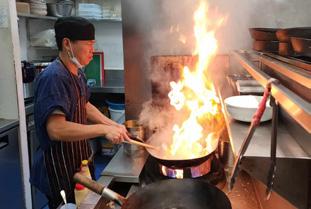
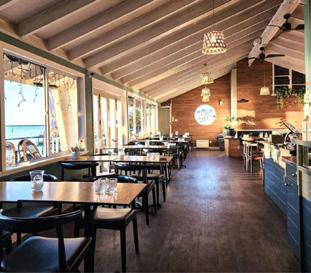
Nahm has been undergoing a major transformation just ahead of its 10-year milestone in March next year. Reopening mid-September, owners Aun and Toey Cheah have been planning the renovation for well over a year. Having owned the business for nearly a decade, they knew exactly what they wanted to change with Toey saying, “We thought it was a good time to give things a bit of a freshen up and we are very excited to showcase the new look restaurant to our customers.”
As part of the renovations, the bar, kitchen, and bathrooms have been overhauled, along with some interior painting to rejuvenate the space. The refurbishment has been a collaborative effort with The Custom Space, a team that has been instrumental in maximizing the restaurant’s efficiency, say the couple. “They have been really helpful, streamlining the kitchen workflow and improving how we will be working within the space.”
Nahm is a Thai culinary experience that Aun and Toey also extend through their other ventures, Angry Thaiger in Nelson and another restaurant in Auckland. Toey saw the renovation period as an opportunity to be proactive and innovative, saying, “As a team we have utilised the Angry Thaiger kitchen to further bring some of the Thai food that we love so much to Nelson. We have been getting creative with flavours and options, and we’re looking at introducing more new dishes in the future.” The couple attribute the success of the business to their dedicated team mem-
bers. “We are nothing without them,” says Aun. “We continue to build them up, keep the team stable and proud. This is part of the reason why we have used the Angry Thaiger kitchen for the menu change - to keep things fresh and exciting for everyone and keep evolving for the future.”
Nahm is sited in a prime location which comes alive, especially during the summer months. With its small, intimate dining space, Nahm is perfect for cosy dinners and intimate conversations. Reflecting on their time, the couple say the support they have received from the community and the Nelson Yacht Club has been incredible. “The Yacht Club are awesome landlords, and the community support has been phenomenal as well. It means a lot to us to have that, especially during tougher times,” says Toey. As they prepare to unveil their refreshed restaurant, Aun and Toey look forward to continuing their journey of culinary excellence and community connection from their beloved Nahm.
Nahm
03 548 7776
322 Wakefield Quay, Nelson nahm.co.nz

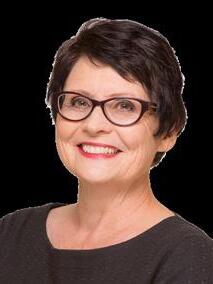


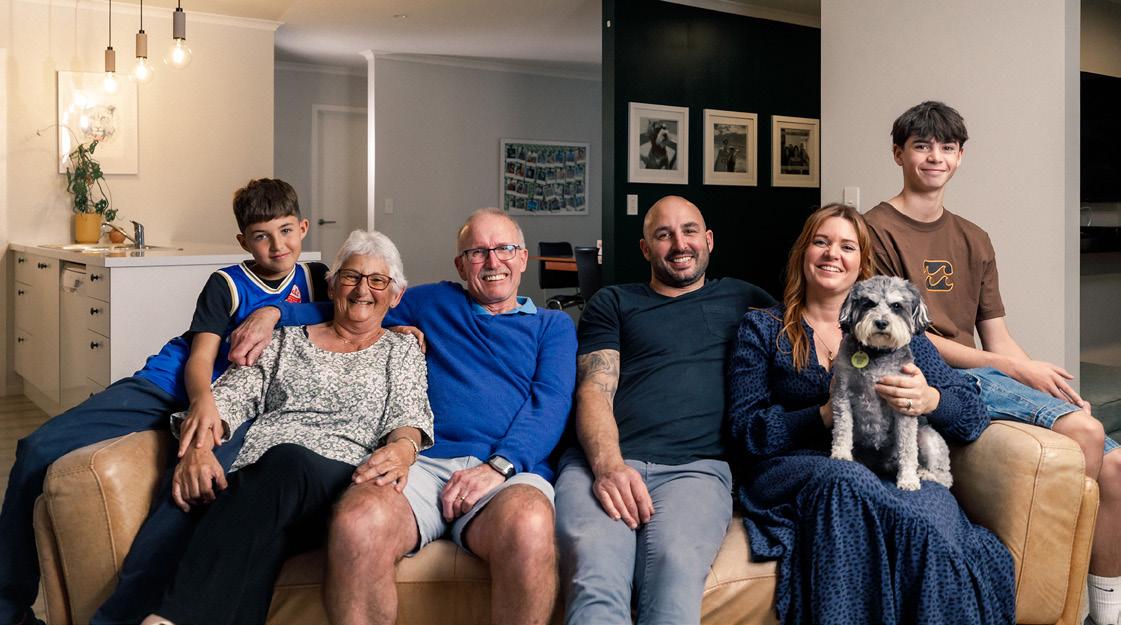
For over 160 years, NBS has offered banking services tailored to every stage of life. Their ‘banking for life’ ethos demonstrates a commitment to establishing strong, trusted relationships, ensuring stability and reliability through personalised and flexible banking options. By focusing on building long-term relationships, NBS provides friendly, adaptable service that truly meets clients’ needs. Being local allows for quick decision-making, enhancing their connection with the community. Peter and Carolyn Campbell’s experience highlights the value of these services. “We have all our personal, everyday banking needs covered, as well as term deposit investments. We always feel well looked after, and they understand our needs. It’s that personal touch we love,” Carolyn says. Peter adds, “They have been along for the ride and have been there for all our milestones.”
From savings and everyday accounts to term investments, NBS ensures clients have the right tools to secure their financial future. Personal and business loans, as well as home loans, help clients with everything from their first home to property investments. With a service spanning generations, Peter and Carolyn’s son Dean and his wife Purdie also chose NBS for their mortgage. “We went with them when we built our first home,” says Dean. “Eleven years later, we remain impressed with their ease, efficiency, and trustworthiness.” The couple emphasises the importance of the personalised service they receive. “The team at NBS sees us as individuals, not just a name on an account,” says Purdie. “That friendliness and personal approach make it feel like we’re part of the family.”
The organisation’s commitment to the community is evident in its support for local initiatives. “We feel huge
pride in being part of the community support that they get behind,” Peter notes. “They do a lot of good in the region and really make a difference.” Dean echoes this sentiment, highlighting the alignment between NBS’s community efforts and their own family values.
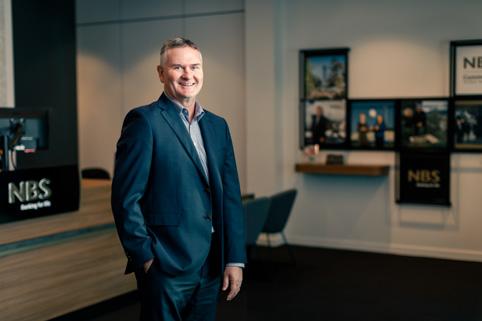
At NBS, banking for life means providing support and services that make life easier, allowing clients to focus on what matters most to them. Chief executive Tony Cadigan says of banking for life, “We have children, parents, grandparents, and great-grandparents that bank with us. And to me, that’s what banking for life is all about. It’s about building relationships with our clients so we can support them in achieving their financial goals, whatever stage of life they’re at.”
Make the switch to experience banking for life for yourself. Get in touch with your local branch or learn more at nbs.co.nz.
NBS is not a registered bank.
NELSON CITY PROBUS CLUB
Welcomes men and women as new members. We meet on the second Thursday of each month (Feb through to Nov) at 10am, at The Nelson Golf Club, 38 Bolt Rd, Tāhunanui. Our programme varies monthly. nznelsoncitygroup@gmail.com.
NELSON COMMUNITY POTTERS
132 Rutherford Street, Nelson. Social group; Thursday mornings or Twilight Pottery; Mondays, 7pm–9pm. Free to members, $7 casual. 03 548 3087 (Annie) or 03 548 1488 (Elizabeth). ncpotters@gmail.com
NELSON PETANQUE CLUB
Wednesday and Sunday 1.15pm. Behind the Trafalgar Park grandstand, off Trafalgar Park Lane. Boules and tuition provided. 027 495 6711 (Alan)
NELSON HINEMOA CROQUET CLUB
Saltwater Lane (off Halifax St, beside squash and tennis courts). Give croquet a go: friendly supportive club, for competition or just fun. Coaching and equipment available. Individuals or groups catered for. 03 546 6227 (Alan) or Nettie nettiebarrow@gmail.com
NELSON MALE VOICE CHOIR
Rehearsals: Reformed Church, Enner Glynn, Monday, 6.45pm. 03 548 4657 (Dick).
U3A NELSON
You’ll never be bored if you join U3A. A selection
of sociable groups for the over-55s ranging from birdwatching to mah-jong, walking to gardening, etc. u3anelson.org.nz
NELSON SCOTTISH COUNTRY DANCING CLUB
If you’re interested in fun, fitness and friendship join us on Thursday nights (Mar–Nov) 7.30pm, at Haven Hall, 34 Collingwood St, Nelson. You don’t need a partner, no charge for your first visit. 021 173 9642 (Kelly).
NELSON TABLE TENNIS CLUB
Saxton Stadium, Monday and Friday 9am–12pm. 03 544 8648 (Glenda).
NELSON SCRABBLE CLUB
Meet every Wednesday, 7pm at the Nelson Suburban Club/ Nelson City Club, Kinzett Terrace, Nelson. No charge for playing, but please buy a drink at the bar. Beginners welcome and we will train you to play competitive Scrabble. 03 545 1159 (Tony).
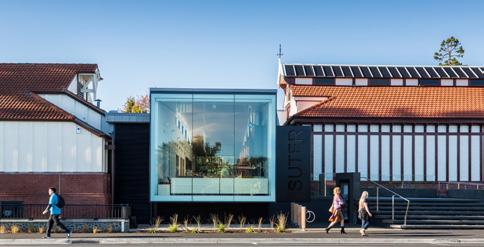
By Nelson Suter Art Society. Opening 5:30, Wed 9 Oct, All Welcome. 9 Oct - 3 Nov. 208 Bridge St, Mckee Gallery @ The Suter Art Gallery.
VICTORY SIXTY PLUS
Tues, 1.30 -3.30pm. 238 Upper Vanguard St. Join us for cards, games, and a cuppa. More info phone Jan on 03 546 9057 or 027 457 7955.
NELSON PHILATELIC SOCIETY
Stamp collectors meet second Tuesday of the month (summer) 7.30pm. Second Sunday (winter) 1.30pm, Stoke School. 03 547 3554 (Ross)nelsonphilatelicsociety@ gmail.com
QUILTERS
Friendly group meets every Mon, 9.30am in Nelson. Bring hand or machine work. More info Ph: Lesley 027 295 4986. $5 per session.
ACUPUNCTURE
Fri, 9am - 11.30am. Victory Community Centre. Designed to make treatment affordable and accessible for all. Dress comfortably in loose fitting clothing. Cost, sliding scale, $5 - $40.
NELSON SENIOR CITIZENS SOCIAL INDOOR BOWLING CLUB
Come and join us for social indoor bowls and a cuppa every Wednesday and Friday afternoon, 1.15pm–4pm. Beginners welcome. Trafalgar St Hall in the City. 03 547 6066 (Erea).
NELSON-WHAKATŪ MENZSHED
We are a group of mostly retired men who enjoy getting together, making stuff, contributing to the community and generally having a good time. Meetings Tuesday and Thursday from 9am, 236 Haven Road, Nelson. 027 608 0377 (Robert). robertshade@hotmail.com. menzshed-nelson.org.nz
NELSON 50+ WALKING GROUP
Come along for a hike with a group of active men and women, every Tuesday at 9.45am. Different destinations each week so it’s a great way to explore our wonderful region. Bring lunch in a backpack. Average walk is 10kms. 021 059 1667 (Noeline)
PHILOSOPHY GROUP
Meet second and fourth Mon of the month, 10am. Zumo Coffee House, Rutherford St. All welcome. Text Zoe 0279741758.
STOKE TĀHUNANUI LADIES CLUB
Meets third Wednesday every month. 03 547 5238 (Pauline).



SUPER SENIORS
(65+) meets third Friday each month, 10.30am– 12.30pm. All Saints Church Foyer, 30 Vanguard Street, Nelson. Suggested koha of $10, includes morning tea, either a speaker or activities, and a light lunch. 03 548 2601 (Gillian or Lynley).
VICTORY SENIOR SUPPORT
Cards and games. Meet every Tuesday at 1.30pm at Anglican Church, 238 Vanguard Street, Nelson. 03 546 9057 (Jan).
RICHMOND MENS
PROBUS CLUB
Welcomes men as new members. We meet on the first Wednesday of each month (February through to November) at 9.45am, at Church of Christ, Cnr Croucher and D’arcy Streets, Richmond. Contact Secretary, Peter Duncan 022 380 8932. richmondmensprobus1988@ gmail.com
HOPE– RANZAU
WOMEN’S INSTITUTE
First Wednesday of each month, 1.15pm. Age Concern Hall, 62 Oxford St, Richmond, visitors welcome. 03 544 5872 (Brenda).
POTTERY
Tutored classes at Craft Potters, 202 Ranzau Rd, Hope. All welcome. No experience needed. info@craftpotters.org.nz
RICHMOND BRIDGE CLUB
Sessions Monday and Thursday, 1pm (be seated by 12.45pm). Wednesday 7.10pm
(be seated by 7pm). For lessons ph Jenny, 027 524 8389
SOCIAL CARDS 500
Waimea Lounge A&P Showgrounds. Tuesdays and Thursdays, 1.30pm – 4pm. $2 covers afternoon tea, prizes and unlimited parking. 03 544 5563 (Kath).
CLUB 60
Senior adventures (under 60s welcome too) active fun, social recreation with
RICHMOND CREATIVE FIBRE GROUP
Meets at Birchwood Hall, Richmond Showgrounds. 9.30am every second, third and fourth Thursday of the month. Learn to spin, knit, weave, crochet, felt and meet others who enjoy working with fibre. 03 544 3315 (Sandra).
RICHMOND CROQUET CLUB
Join us at 348 Lower Queen
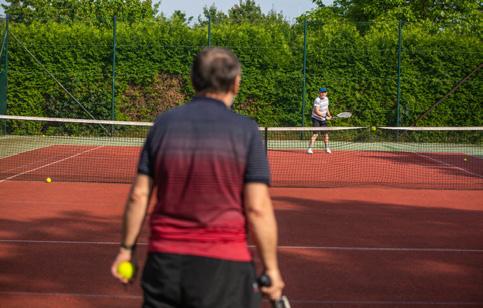
RICHMOND TENNIS CLUB
Social tennis Tuesdays 9.30am and Saturdays 1.30pm. All abilities welcome. Beside the Badminton Hall, Gladstone Rd. richmondtennisclub.co.nz
weekly planned outings and activities. Meets every Wednesday, 9.30am at Sport Tasman, Richmond Town Hall, Cambridge St. All sessions $5. 03 544 3955. stadium@sporttasman.org.nz
RICHMOND BOWLING CLUB
Club Waimea – A roll up, Tuesdays 1pm. Bowls provided. 03 544 8060 (Jean).
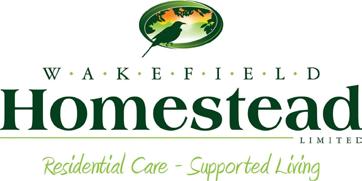
St, Richmond. Have fun, learn a new skill. We play both Association and Golf Croquet. 021 958 447 (Rhonda).
RICHMOND SCOTTISH COUNTRY DANCING CLUB
Tuesday evening, 7.30pm. Methodist Church Hall, Neale Ave, Stoke. 03 544 0902. cstanton@actrix.co.nz
SIOUX LINE DANCING
Wednesday – Club Waimea, Richmond. Beginner Class, 6pm – 7pm. Improver Class, 7.15pm – 8.30pm. 03 528 6788 (Sue).
TASMAN AQUARIUM CLUB
Meetings held second Monday of the month at 7pm. Keeping tropical freshwater, aquatic plants, marine fish and corals. Everyone welcome. 03 544 3116 (Robin).
RICHMOND GARDEN CLUB
Meets first Wednesday of the month at 1pm, Whakatu Church, Champion Road Richmond. Guest speakers, sales table, afternnon tea. New members welcome. 021 0541 998 (Paula).
NELSON CAMERA CLUB
Meet second and fourth Monday of each month, 7.30pm, Methodist Church Hall, 94 Neale Ave, Stoke. noeline@nelsoncameraclub. co.nz
ACTING UP DRAMA
GROUP
Meets each Monday 10.30am–12pm at Whakatū Presbyterian Church Hall Lounge, Upper Songer Street, Stoke. No previous experience necessary! 03 538 0400 (Anne)
BENCHREST SHOOTING CLUB
Meets every Tuesday at Saxton Field Range, 1pm–3pm. 03 544 7138 (Graeme).

Across
3. Promotional words on book (5)
9. Component (4)
10. Supply with oxygen (6)
11. Fate (5)
12. Tree branch (4)
14. Batter (6)
15. Doorway (6)
17. Snare (6)
20. Dull pain (4)
22. Tree (3)
23. In this place (4)
24. Closer (6)
25. Tooth coating (6)
29. Prickling sensation (6)
31. Bend out of shape (4)
32. Overweight (5)
33. Breakfast food (6)
34. Accomplishment (4)
35. Even (5) Down
1. Bewitchment (5)
2. Vagabond (5)
4. Smallest amount (5)
5. Walker (7)
6. Boyfriend (4)
7. Armed conflict (7)
8. Bureaucracy (3,4)
13. Pugilist (5)
16. Hole in one (3)
18. Hurled (5)
19. Biblical vessel (3)
20. Whenever (7)
21. Obsessed (7)
22. Something at no cost (colloq) (7)
26. Passageway (5)
27. Tier (5)
28. Malice (5)
30. Laze about (4)

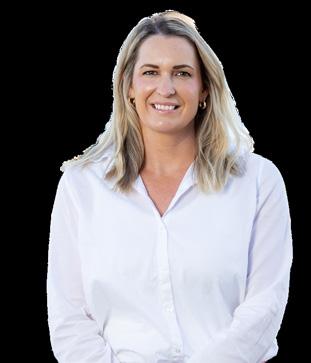
How many five-letter words can you make?
The answers are words widely known; no words can begin with a capital; no hyphenated words.
Today there are 10 possible words _ T _ R _
Numbers have been substituted for letters. Use the letter(s) given to work out the rest of the puzzle.

Fill the grid so that every row, every column and every 3x3 box contains the digits 1 to 9
stare, stark, stars, start, stern, stirs, store, stork, storm, story.
Quick crossword
fare, 8. Red tape, 13. Boxer, 16. Ace, 18. Threw, 19. Ark, 20. Anytime, 21. Haunted, 22. Freebie, 26. Aisle, 27. Layer, 28. Spite, 30. Loll.
Level. Down: 1. Spell, 2. Tramp, 4. Least, 5. Rambler, 6. Beau, 7. -War
15. Portal, 17. Entrap, 20. Ache, 22. Fir, 23. Here, 24. Nearer, 25. Enamel, 29. Tingle, 31. Warp, 32. Obese, 33. Muesli, 34. Feat, 35.
10. Aerate, 11. Karma, 12. Limb, 14. Buffet,
Across: 3. Blurb, 9.

The challenge is to rearrange a crossword which has been broken into 25 sections. One letter has been given to get you started. Work out which 3x3 square fits in with that letter and write in the letters. You can also shade the black squares if you find it helpful. After completing the first 3x3 area, work out which square joins on to it, and continue until you have made a complete crossword.
The challenge is to rearrange a crossword which has been broken into 25 sections. One letter has been given to get you started. Work out which 3x3 square fits in with that letter and
1. What was the nickname of the bank robber Charles Floyd, killed by the FBI in 1934?
2. If one parent has blue eyes and the other brown, statistically, what colour are their baby’s eyes likely to be?
3. Give either of the proprietary names for the drug diazepam when it was first released in the 1960s.
4. Althea Gibson was the first black woman to win a Wimbledon singles title: was it in the 1950s, 1960s or 1970s?
write in the letters. You can also shade the black squares. After completing the first 3x3 area, work out which square joins on to it, and continue until you have made a complete crossword.
Across
1. Roadblock (9)
6. Swallows (5)
7. Vernacular (5)
9. Prying (4)
10. Performed music on (6)
12. Batten down (6)
14. Bathroom powder (4)
17. Smell (5)
18. Kingdom (5)
19. Star study (9)
Down
2. Book of maps (5)
3. Deceptive manoeuvre (4)
4. Cool (6)
5. Small lace mat (5)
6. Origin (7)
8. Small indefinite amount (7)
11. Favour (6)
13. Change (5)
15. Fright (5)
16. Small bird (4)
Bring
Share

We're proud to introduce Sleepmap: technology that takes the confusion out of choosing a new bed.
In your preferred sleep position.
While over 10,000 sensors get to work.
Sleepmap offers a bed to fit your specific needs.


This leading edge, state-of-the-art bed matching system: Adds confidence to the process of choosing a new bed.
Works for solo-sleepers and couples. Is a free service, with no obligation to purchase after you’ve received your profile. Takes only minutes to find your match.



Athalie says: If I wake up in the night I make a cup of tea and raise the head and foot of my bed to make a little nest, read my book, drink my tea and then go back to sleep.

